Climate Change, Sustainability and Society PhD
Most students complete this programme in 4 years full-time.
Explore environmental change and the diverse responses needed to foster behaviours, practices and policies which promote sustainability.
In this interdisciplinary pathway, you will investigate sustainability topics using insights and perspectives from multiple disciplines, with a primary focus on social sciences (e.g., psychology, policy studies, political science, development studies, education, economics, social geography, sociology).
Find out what our research graduates go on to do
Department of Psychology
- Programme structure
Most students complete this programme in 4 years. You cannot take less than 2 years to finish your research and the maximum time you are allowed is normally 4 years.
This programme is only available through the Southwest Doctoral Training Partnership. Applications open from October each year and close around January. More information is available to Study as a South West Doctoral Training Partnership (SWDTP) student at Bath
You may start this programme at any time. Most students start in September.
Occasionally we make changes to our programmes in response to, for example, feedback from students, developments in research and the field of studies, and the requirements of accrediting bodies. You will be advised of any significant changes to the advertised programme, in accordance with our Terms and Conditions.
Your academic progress and general welfare will be monitored by your supervisor.

Academic milestones
- Registration
- Candidature
- Confirmation
- Give notice of intention to submit a thesis / portfolio
- Submission for examination
- Examination (Viva Voce)
- Examiners report
- Final submission of thesis / portfolio
- Programme content
- Doctoral skills online
- Doctoral skills workshop
- Research project
- Supervisory team
Research content
Sustainability topics can be wide-ranging, with the content of your research determined with your PhD supervisory team. However, in line with the goals of this PhD programme, your thesis will have a primarily social science focus.
While you will have a lead (primary) supervisor, you should also have at least one additional supervisor working in a different discipline to help you develop your interdisciplinary insights.
Professional Development
Professional development is a crucial element of doctoral study, not only in supporting your research but also as part of your longer term career development. Our DoctoralSkills workshops and courses will help you build your skills and help you succeed in your doctorate.
Read more about professional development support
Assessment methods
Assessment description.
Most research students who ‘do a PhD’ register in the first instance as probationer for the programme of PhD. Confirmation of PhD registration is subject to your passing an assessment process, which normally involves submission of written work and an oral examination.
Candidates are expected to carry out supervised research at the leading edge of their chosen subject, which must then be written up as a substantial thesis.
The final stage of the PhD programme is the oral or viva voce examination, in which students are required to defend the thesis to a Board of Examiners.
- Entry requirements
Academic requirements
- A good first degree in a social science subject, or
- an equivalent degree in another subject, together with substantial relevant work experience
Underlying these conditions is a belief that students must bring a minimum combination of theoretical knowledge and practical experience to the programme. Marginal cases are often dealt with at interview, and it is not uncommon for relatively inexperienced students to be asked to defer entry.
English Language requirements
You will normally need one of the following:
- IELTS: 7.0 overall with no less than 6.5 in all components
- The Pearson Test of English Academic (PTE Academic): 69 with no less than 62 in any element
- TOEFL IBT: 100 overall with a minimum 24 in all 4 components
You will need to get your English language qualification within 24 months prior to starting your course.
If you need to improve your English language skills before starting your studies, you may be able to take a pre-sessional course to reach the required level.
Two references are required for this programme (at least one of these should be an academic reference from ypur most recent place of study).
- Fees and funding
Fees and funding information for Climate Change, Sustainability and Society PhD
Your tuition fees and how you pay them will depend on whether you are a Home or Overseas student.
Learn how we decide fee status
Tuition fees are liable to increase annually for all University of Bath students. If you aren't paying your fees in British pounds, you should also budget for possible fluctuations in your own currency.
Find out more about student fees
Funding options
This is an Economic and Social Research Council (ESRC) recognised programme, suitable for ESRC-funded 1+3 awards or subsequent +3 applications (MRes and PhD)
ESRC-funded students are able to claim (during their studies) for three additional allowances:
- Overseas Fieldwork Allowance
- Difficult Language Training
- Overseas Institutional Visits
For more information on these allowances please see the ESRC Postgraduate Funding Guide . Please note that if you anticipate such activities you should outline the details in your application.
Find funding for Doctoral research
Payment options
You can pay your tuition fees by Direct Debit, debit card, credit card or bank transfer.
Paying your tuition fees
- Application information
- Programme title Climate Change, Sustainability and Society PhD
- Final award PhD
- Mode of study Full-time
- Course code RHPS-AFM02
- Department Department of Psychology as part of the ESRC South West Doctoral Training Partnership (SWDTP) in economic and social science
- Location University of Bath Claverton Down, Bath BA2 7AY
3 months prior to the intended start date (for international applicants) or 2 months prior to the intended start date (for home applicants). For example, for an end of September start, the deadline is 30 June (international) and 31 July (home).
- Regulator The Office for Students (OfS)
Applicant profile
Your proposal should address a problem or question with strong links to the themes of this interdisciplinary pathway.
Prior to applying, please contact and gain agreement to supervise you from an academic staff member (who will become your lead supervisor), as well as your additional supervisor(s), as their agreement to supervise is critical for acceptance into the PhD program. Your lead supervisor may be able to advise on the most suitable additional supervisor(s). Gaining feedback on your proposal from your potential supervisors prior to submission is strongly encouraged.
The proposal itself should include;
- a brief review of relevant background literature (to contextualise the issue)
- a core research question or theme
- an outline of the possible methods that could be used to address this question.
- how your research will draw on interdisciplinary perspectives
If you wish to study for both the MRes and the PhD (the 1 + 3) you should apply for the PhD but indicate on the Application Form, that you also wish to study for the MRes.
Progression from the MRes to the PhD stage is dependent on achieving an acceptable level of achievement (typically an overall average of 60% on at least the taught component of the MRes).
See our guide about how to apply for doctoral study
Selection process
See our guide for information on how to apply for ESRC SWDTP funding
Immigration requirements
If you are an international student, you can find out more about the visa requirements for studying in the UK .
For additional support please contact the Student Immigration Service for matters related to student visas and immigration.
- Programme enquiries
Doctoral Admissions
- Apply for this programme
- Related programmes
- Climate Change, Sustainability and Society PhD part-time
On this page
Cookies on our website
We use some essential cookies to make this website work.
We'd like to set additional cookies to understand how you use our site so we can improve it for everyone. Also, we'd like to serve you some cookies set by other services to show you relevant content.
Development Studies (IDS) PhD
Key information.
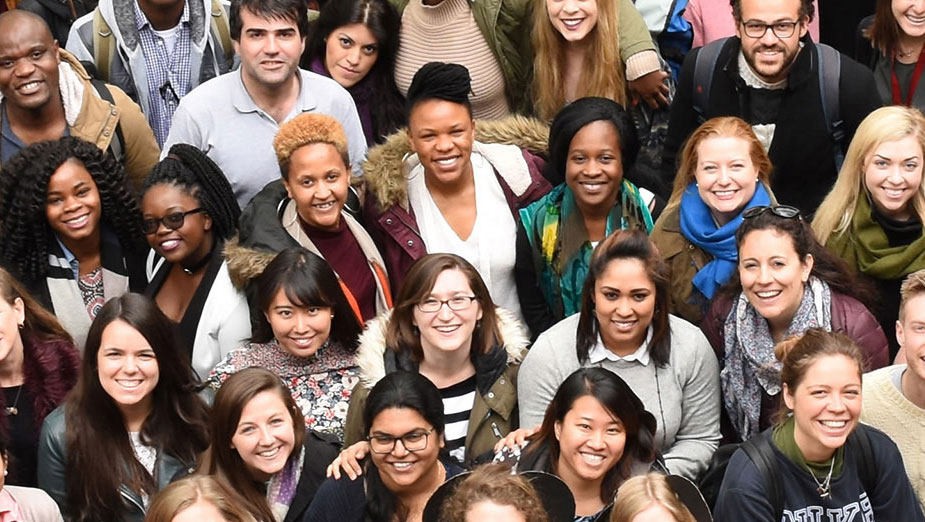
- 1st in the world for Development Studies (QS World University Rankings by Subject 2024)
Study with the world leaders in Development Studies and realise your potential to transform the world
The Institute of Development Studies (IDS) transforms the knowledge, action and leadership needed for more equitable and sustainable development globally, through our world-class research, learning and teaching.
As a PhD researcher, you’ll join a thriving research community with more than 70 research staff and 50 postgraduate researchers. You’ll have access to research and teaching opportunities, as well as a substantial series of seminars presented by leading development professionals and practitioners.
Your time at IDS will equip you with the training needed to launch your career in academia, government, civil society or the private sector, and make a real difference in bringing about transformative change. Our PhD graduates are defining and solving some of the world’s most pressing global challenges in their work as:
- ministers in national governments and civil servants
- high-level officials in development organisations such as UNDP and the World Bank
- leaders and thinkers of civil-society and international development organisations such as ActionAid and Christian Aid
- high-profile academics at universities across the world.
What it’s like to study for a PhD at IDS – Jorge Ortiz-Moreno
Areas of study
We welcome submissions from researchers who share our commitment to:
- upholding climate and environmental justice
- reducing extreme inequities
- fostering healthy and fulfilling lives
- nurturing inclusive, democratic and accountable societies.
We’re particularly interested in work that shows originality in addressing topics related to the work of our research fellows based across our ten research clusters .
Find out about our current PhD researchers
We understand that deciding where and what to study is a very important decision. We’ll make all reasonable efforts to provide you with the courses, services and facilities described in this prospectus. However, if we need to make material changes, for example due to government or regulatory requirements, or unanticipated staff changes, we’ll let you know as soon as possible.
Masters and P h D events
Meet us on campus or online
Book your place
Entry requirements
- UK requirements
- International requirements
| Degree requirements | You’re normally expected to have a Merit (an average of 60% overall) in a Masters degree. |
|---|---|
| Subject-specific requirements | Your qualification should be in a relevant social sciences subject. In exceptional circumstances, you may be considered for the degree if you have a qualification in a different subject area. You must also show evidence of substantial professional work experience in a developing country or in development-related work. |
Please select your country from the list.
| Masters degree requirement | You’re normally expected to have the equivalent of a UK Masters degree, which will mean having completed some academic study beyond your Bachelors degree. |
|---|---|
| Subject-specific requirements | Your qualification should be in a relevant social sciences subject. In exceptional circumstances, you may be considered for the degree if you have a qualification in a different subject area. You must also show evidence of substantial professional work experience in a developing country or in development-related work. |
| Please note | Our entry requirements are guidelines and we assess all applications on a case-by-case basis. |
Philippines
Saudi arabia, south africa, south korea, switzerland, united arab emirates, my country is not listed.
If your country is not listed, you need to contact us and find out the qualification level you should have for this course. Contact us
| Subject-specific requirements | Your qualification should be in a relevant social sciences subject. In exceptional circumstances, you may be considered for the degree if you have a qualification in a different subject area. You must also show evidence of substantial professional work experience in a developing country or in development-related work. |
|---|
English language requirements
Ielts (academic).
Advanced level (7.0 overall, including at least 6.5 in each component).
IELTS scores are valid for two years from the test date. You cannot combine scores from more than one sitting of the test. Your score must be valid when you begin your Sussex course. Find out more about IELTS
We accept IELTS One Skills Retake.
We do not accept IELTS Online.
Check full details of our English Language requirements and find out more about some of the alternative English language qualifications listed below
Alternative English language qualifications
Proficiency tests, cambridge advanced certificate in english (cae).
176 overall, including at least 169 in each skill.
We would normally expect the CAE test to have been taken within two years before the start of your course.
You cannot combine scores from more than one sitting of the test. Find out more about Cambridge English: Advanced
Cambridge Certificate of Proficiency in English (CPE)
We would normally expect the CPE test to have been taken within two years before the start of your course.
You cannot combine scores from more than one sitting of the test. Find out more about Cambridge English: Proficiency
LanguageCert Academic SELT
Advanced level (75 overall, including at least 70 in each component).
LanguageCert Academic SELT scores are valid for two years from the test date. Your score must be valid when you begin your Sussex course. Find out more about LanguageCert Academic SELT
We only accept LanguageCert when taken at SELT Test Centres.
We do not accept the online version. We also do not accept the non-SELT version.
LanguageCert International ESOL SELT
Advanced level (International ESOL SELT C1 with a minimum of 33 in each component)
LanguageCert International ESOL scores are valid for two years from the test date. Your score must be valid when you begin your Sussex course. Find out more about LanguageCert SELT
We only accept LanguageCert when taken at SELT Test Centres. We do not accept the online version.
Pearson PTE Academic
Advanced level (67 overall, including at least 62 in all four skills)
PTE (Academic) scores are valid for two years from the test date. You cannot combine scores from more than one sitting of the test. Your score must be valid when you begin your Sussex course. Find out more about Pearson (PTE Academic)
We do not accept the PTE Academic Online test.
TOEFL (iBT)
Advanced level 95 overall, including at least 22 in Listening, 23 in Reading, 23 in Speaking, 24 in Writing.
TOEFL (iBT) scores are valid for two years from the test date. You cannot combine scores from more than one sitting of the test. Your score must be valid when you begin your Sussex course. Find out more about TOEFL (iBT)
We do not accept TOEFL (iBT) Home Edition.
The TOEFL Institution Code for the University of Sussex is 9166.
English language qualifications
As/a-level (gce).
Grade C or above in English Language.
Hong Kong Advanced Level Examination (HKALE)/ AS or A Level: grade C or above in Use of English.
GCE O-level
Grade C or above in English.
Brunei/Cambridge GCE O-level in English: grades 1-6.
Singapore/Cambridge GCE O-level in English: grades 1-6.
GCSE or IGCSE
Grade C or above in English as a First Language (Grade 4 or above in GCSE from 2017).
Grade B or above in English as a Second Language.
Ghana Senior Secondary School Certificate
If awarded before 1993: grades 1-6 in English language.
If awarded between 1993 and 2005: grades A-D in English language
Hong Kong Diploma of Secondary Education (HKDSE)
Level 4, including at least 3 in each component in English Language.
Indian School Certificate (Standard XII)
The Indian School Certificate is accepted at the grades below when awarded by the following examination boards:
Central Board of Secondary Education (CBSE) – English Core only: 70%
Council for Indian School Certificate Examinations (CISCE) - English: 70%
International Baccalaureate Diploma (IB)
English A or English B at grade 5 or above.
Kenya Certificate of Secondary Education
Grades A - C in English language
Malaysian Certificate of Education (SPM) 1119/GCE O-level
If taken before the end of 2008: grades 1-6 in English Language.
If taken from 2009 onwards: grade C or above in English Language.
The qualification must be jointly awarded by the University of Cambridge Local Examinations Syndicate (UCLES).
West African Senior School Certificate
Grades A1-C6 (1-6) in English language when awarded by the West African Examinations Council (WAEC) or the National Examinations Council (NECO).
Country exceptions
Select to see the list of exempt english-speaking countries.
If you are a national of one of the countries below, or if you have recently completed a qualification equivalent to a UK Bachelors degree or higher in one of these countries, you will normally meet our English requirement. Note that qualifications obtained by distance learning or awarded by studying outside these countries cannot be accepted for English language purposes.
You will normally be expected to have completed the qualification within two years before starting your course at Sussex. If the qualification was obtained earlier than this, we would expect you to be able to demonstrate that you have maintained a good level of English, for example by living in an English-speaking country or working in an occupation that required you to use English regularly and to a high level.
Please note that this list is determined by the UK’s Home Office, not by the University of Sussex.
List of exempt countries:
- Antigua and Barbuda
- New Zealand
- St Kitts and Nevis
- St Vincent and the Grenadines
- The British Overseas Territories
- Trinidad and Tobago
- United Kingdom
** Canada: you must be a national of Canada; other nationals not on this list who have a degree from a Canadian institution will not normally be exempt from needing to provide evidence of English.
English language support
If you don’t meet the English language requirements for your degree, you may be able to take a pre-sessional course
- Visas and immigration
Admissions information for applicants
| Research proposal | You must write an outline research proposal of two to three pages indicating the nature, ambition and primary questions of your research project. |
|---|
If your qualifications aren’t listed or you have a question about entry requirements, contact us
- How to apply
If you’d like to join us as a research student, there are two main routes:
- browse funded projects in this subject area
- browse our potential supervisors and propose your own research project.
Find out how to apply for a PhD at Sussex
Full-time and part-time study
Choose to work on your research full time or part time, to fit around your work and personal life. For details about part-time study, contact us at [email protected]
Our supervisors
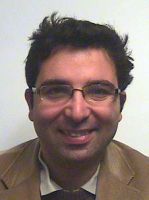
Prof Jeremy Allouche
View profile of Jeremy Allouche
Dr Marina Apgar
Associate Fellow
View profile of Marina Apgar
Dr Seife Ayele
View profile of Seife Ayele

Dr Inka Barnett
View profile of Inka Barnett
Dr Gerald Bloom
View profile of Gerald Bloom
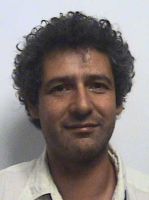
Prof Danny Burns
View profile of Danny Burns
Dr Lidia Cabral
View profile of Lidia Cabral
Mr Terry Cannon
View profile of Terry Cannon
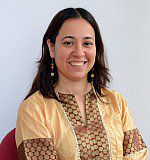
Dr Deepta Chopra
View profile of Deepta Chopra

Dr Stephen Devereux
View profile of Stephen Devereux
Dr Ayako Ebata
Research Fellow
View profile of Ayako Ebata

Mr Jerker Edstrom
View profile of Jerker Edstrom
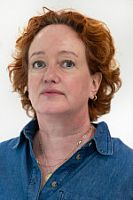
Ms Becky Faith
View profile of Becky Faith
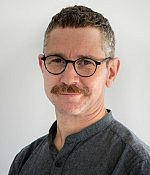
Dr Dominic Glover
View profile of Dominic Glover

Dr Martin Greeley
View profile of Martin Greeley

View profile of Jing Gu
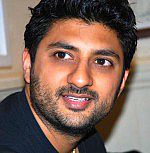
Dr Jaideep Gupte
Cluster Leader/Fellow
View profile of Jaideep Gupte
Dr Thomas Harrison
View profile of Thomas Harrison
Dr Martin Hearson
View profile of Martin Hearson
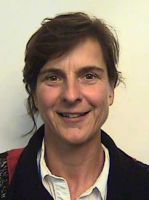
Dr Jo Howard
View profile of Jo Howard
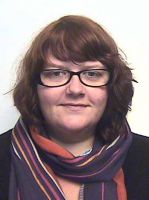
Dr Amber Huff
View profile of Amber Huff

Dr Anuradha Joshi
View profile of Anuradha Joshi

Prof Patricia Justino
View profile of Patricia Justino
Dr Shandana Khan Mohmand
Cluster Leader/ Fellow
View profile of Shandana Khan Mohmand

Prof Melissa Leach
View profile of Melissa Leach
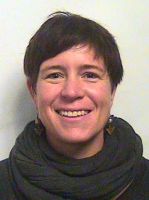
Dr Tessa Lewin
View profile of Tessa Lewin

Dr Jeremy Lind
View profile of Jeremy Lind

Dr Miguel Loureiro
View profile of Miguel Loureiro
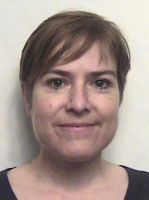
Prof Hayley Macgregor
View profile of Hayley Macgregor
Dr Philip Mader
View profile of Philip Mader
Mr Gauthier Marchais
View profile of Gauthier Marchais
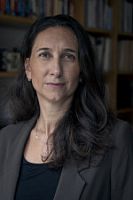
Dr Giulia Mascagni
View profile of Giulia Mascagni

Dr Rosemary Mcgee
View profile of Rosemary Mcgee
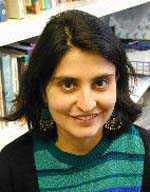
Prof Lyla Mehta
View profile of Lyla Mehta

Prof Michael Moore
Professorial Fellow
View profile of Michael Moore
Dr Lars Otto Naess
View profile of Lars Otto Naess
Prof Sohela Nazneen
View profile of Sohela Nazneen

Prof Nicholas Nisbett
View profile of Nicholas Nisbett

Dr Pauline Oosterhoff
View profile of Pauline Oosterhoff
Dr Marjoke Oosterom
View profile of Marjoke Oosterom
Dr Wilson Prichard
View profile of Wilson Prichard
Dr Tony Roberts
View profile of Tony Roberts
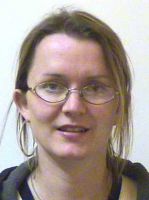
Ms Rachel Sabates-Wheeler
Fellow in Gender & Development
View profile of Rachel Sabates-Wheeler
Prof Ian Scoones
View profile of Ian Scoones

Dr Patta Scott-Villiers
View profile of Patta Scott-Villiers
Dr Alex Shankland
View profile of Alex Shankland
Dr Jacqueline Shaw
View profile of Jacqueline Shaw
Dr Wei Shen
View profile of Wei Shen
Dr Shilpi Srivastava
View profile of Shilpi Srivastava

Dr James Sumberg
View profile of James Sumberg

Dr Mariz Tadros
View profile of Mariz Tadros
Dr Dolf Te Lintelo
View profile of Dolf Te Lintelo

Dr John Thompson
View profile of John Thompson
Ms Jodie Thorpe
View profile of Jodie Thorpe
Dr Giel Ton
View profile of Giel Ton
Dr Linda Waldman
View profile of Linda Waldman
Dr Mary Wickenden
View profile of Mary Wickenden
Miss Annie Wilkinson
View profile of Annie Wilkinson

Dr Dirk Willenbockel
View profile of Dirk Willenbockel
Funding and fees
How can i fund my course, funded projects and scholarships.
Our aim is to ensure that every student who wants to study with us is able to despite financial barriers, so that we continue to attract talented and unique individuals. Don’t miss out on scholarships – check the specific application deadlines for funding opportunities. Note that funded projects aren’t available for all our PhDs.
£3,000 scholarships available to environmental influencers bringing about real-world behaviour change
Find out more
£800 scholarship available to reward talented organ player studying on any course at Sussex.
Scholarships of £800 are available to reward talented musicians studying on any course at Sussex
Cash scholarships available for students who have demonstrated sporting excellence
Applying for USA Federal Student Aid?
If any part of your funding, at any time, is through USA federal Direct Loan funds, you will be registered on a separate version of this degree which does not include the possibility of distance learning which is prohibited under USA federal regulations. Find out more about American Student Loans and Federal Student Aid .
Part-time work
We advertise around 2,500 part-time jobs a year so you can make money and gain work experience. We have a special scheme to employ students on campus, wherever possible.
Find out more about careers and employability
How much does it cost?
Fees for self-funding students.
Home students: £4,786 per year for full-time students
Channel Islands and Isle of Man students: £4,786 per year for full-time students
International students: £21,500 per year for full-time students
Home PhD student fees are set at the level recommended by United Kingdom Research and Innovation (UKRI) annually, rising in line with inflation. Overseas fees are subject to an annual increase - see details on our tuition fees page
Additional costs
Note about additional costs.
Please note that all costs are best estimates based on current market values. Activities may be subject to unavoidable change in response to Government advice. We’ll let you know at the earliest opportunity. We review estimates every year and they may vary with inflation. Find out how to budget for student life .
Almost all IDS PhD researchers choose to do empirical research and fieldwork for their PhDs. The broad parameters of this research (topic and country) are usually decided by the student and included in the proposal submitted as part of the application to the PhD programme. More detailed assessments of the scope and scale of this research are usually developed in conjunction with supervisors during the first year of the PhD. Fieldwork usually lasts between 8 and 12 months and costs depend on the scope and scale of the activities. For example, participant observation and qualitative interviews undertaken in your home country and in a language with which you are familiar, may not be very expensive, but working in a country where you need visas, in-country ethical approval, and have to employ translators, transcribers, or a team of enumerators for a quantitative survey can mean that costs rapidly escalate. Where you stay, how you travel to your fieldsite, what technology you use to collect and analyse data and how long you stay will all influence the costs. IDS does not fund fieldwork costs. There is a small conference fund and PhD students can apply for up to £450 during their PhDs if they are presenting a paper at a conference.
Empirical Research Costs
IDS requires that students register for a minimum of three years. Most students spend time on fieldwork that may take place in a development context – either overseas or in the UK. During fieldwork, students are charged a fee which is normally charged 65% of the full-time fee but may be subject to change. After having made substantial progress and completed three years of registration, students may be permitted to transfer to pre-submission status for a maximum of 12 months. IDS considers substantial progress to be the completion of three empirical chapters, supervisors' approval and a successful work-in-progress seminar. If pre-submission status is not granted, then full-time fees are still applicable. The pre-submission fee is approximately £500 for each year or part thereof. Unfortunately, neither IDS nor the University of Sussex can offer financial support. Applicants requiring financial assistance should contact their local Ministry of Education or Ministry of Foreign Affairs and the British Council representative (c/o British Embassy). For the latest information on fees, funding and scholarships, visit the University of Sussex website .
- Living costs
Find out typical living costs for studying at Sussex
Find out about our terms and conditions
Explore our campus
Experience Sussex life in our virtual tour.
Start your virtual tour
PhD Information Sessions
Visit campus and chat to staff and students. Book your place
Online PhD Sessions
Join a live webchat. Book your place
International
Meet us in your country
Course enquiries
+44 (0)1273 876787
Send us a message
Admissions enquiries
If you haven’t applied yet:
+44 (0)1273 606261 [email protected]
Find out about the Institute of Development Studies
After you’ve applied:
+44 (0)1273 877773 [email protected]
Find out how to apply
Quick links
- Guide to PhD study
- PhD support
- Academic facilities
- Open Days and events
- Accommodation
- International students
- Student life
- Order a printed prospectus
What do you want to do next?
- Courses Browse our courses by subject area
- Sussex Life Find out about life at Sussex
- Visit Come to a PhD Open Evening
- Apply Find out how to apply

DPhil in Sustainable Urban Development
- Entry requirements
- Funding and costs
College preference
- How to apply
About the course
The Doctor of Philosophy (DPhil) in Sustainable Urban Development is a part-time doctoral programme that provides outstanding students an opportunity to pursue in-depth and rigorous research about the pressing challenges of urban sustainability and the processes of environmental, economic, and social development in urban environments around the world.
Students admitted to the programme are usually motivated to undertake detailed research in preparation for an academic career and other research-intensive occupations; to have a substantial impact on future policy-making processes; or to pursue and/or advance their professional career at organisations and institutions operating in the field of sustainable urban development. The course provides support and an intellectual environment by leading scholars in the field to pursue your own independent research.
Pattern of teaching and learning
This is a part-time DPhil programme, taken over a minimum of four years and a maximum of eight years. You are required to have a good general knowledge of the field within which research falls, and of the methods appropriate to the study of this field. Throughout the period of study, you will be part of a thriving international graduate community of students engaged with sustainable urban development, including students on the part-time MSc in Sustainable Urban Development .
Students are expected to attend the programme’s two doctoral training weeks each academic year (usually held in October and June), and to contribute to additional online research and reading seminars. Students should meet regularly with their supervisor during their doctoral research – usually once or twice a term - but also will be motivated and capable of maintaining consistent independent and self-directed studies throughout the year.
As a part-time student you will be required to attend course activities and related obligations in Oxford for a minimum of 30 days each year.
There will be flexibility in the dates of attendance, which will be determined by mutual agreement with your supervisor. You will have the opportunity to tailor your part-time study and pattern of in-person attendance in liaison with your supervisor. It is expected that you will join all online course activities during your period of study.
Supervision
The allocation of graduate supervision for this course is the responsibility of the Department for Continuing Education and it is not always possible to accommodate the preferences of incoming graduate students to work with a particular member of staff. Under exceptional circumstances a supervisor may be found outside the Department for Continuing Education.
Students admitted to this degree will conduct their own research under the guidance of a University supervisor, who will advise on all aspects of training, development and academic progress. In being admitted to the degree you must be prepared to work independently a good deal, and you will need considerable personal motivation.
In the case of students admitted to the DPhil who require specific help to adjust to an academic programme or to a new range of skills, the supervisor will work with them to ensure that they have additional support.
Students on the DPhil are required to attend a minimum of 30 days of university-based work each year for the duration of your studies, usually that involves meeting their supervisor once a term.
Students will be admitted initially as a Probationary Research Student (PRS), in line with University regulations on doctorates. During the probationary period, you will develop and begin work on the thesis topic. You will develop research skills through a range of training and skills development primarily offered via the Department for Continuing Education Graduate School, as well as across the University.
Students must apply for a Transfer of Status from PRS to DPhil status between the sixth and the eighth academic term after admission, each academic year at Oxford having three terms. This involves the submission of a piece of written work that is examined by two assessors, neither of whom will be your supervisors. This process is to ensure that your work is of potential DPhil quality and that the methodology of the research is appropriate and feasible. Upon successful completion of the Transfer of Status, you would usually undertake a period of primary fieldwork/data collection over one to two years.
You will also be required to apply for a Confirmation of Status as DPhil sometime between the twelfth and eighteenth term after admission. This will also involve the submission of a piece of written work that is assessed by two assessors, neither of whom will be your supervisors. The Confirmation of Status assessment is different to the Transfer of Status assessment as the assessors will be focusing on how the research is progressing, the quality of the draft chapters/papers, and on the plan for completion. The assessors will be looking to ensure that you are making the appropriate amount of progress in the development of your thesis, so that thesis submission will be achieved within the time limit.
You will be expected to submit a substantive academic thesis of around 100,000 words after the eighteenth or, at most, twenty-fourth term from the date of admission. To be successfully awarded a DPhil in Sustainable Urban Development you will need to defend your thesis orally (viva voce) in front of two appointed examiners.
Graduate destinations
It is expected that students will already be in employment, working within some area related to urban development. The DPhil may enhance professional practice, career prospects and help secure promotions and other opportunities.
Changes to this course and your supervision
The University will seek to deliver this course in accordance with the description set out in this course page. However, there may be situations in which it is desirable or necessary for the University to make changes in course provision, either before or after registration. The safety of students, staff and visitors is paramount and major changes to delivery or services may have to be made in circumstances of a pandemic, epidemic or local health emergency. In addition, in certain circumstances, for example due to visa difficulties or because the health needs of students cannot be met, it may be necessary to make adjustments to course requirements for international study.
Where possible your academic supervisor will not change for the duration of your course. However, it may be necessary to assign a new academic supervisor during the course of study or before registration for reasons which might include illness, sabbatical leave, parental leave or change in employment.
For further information please see our page on changes to courses and the provisions of the student contract regarding changes to courses.
Entry requirements for entry in 2024-25
Proven and potential academic excellence.
The requirements described below are specific to this course and apply only in the year of entry that is shown. You can use our interactive tool to help you evaluate whether your application is likely to be competitive .
Please be aware that any studentships that are linked to this course may have different or additional requirements and you should read any studentship information carefully before applying.
Degree-level qualifications
As a minimum, applicants should hold or be predicted to achieve the following UK qualifications or their equivalent:
- a master's degree with distinction overall, or a distinction grade on the dissertation as a minimum, in a discipline relevant to sustainable urban development; and
- a first-class or strong upper second-class undergraduate degree with honours in any discipline.
For applicants with a degree from the USA, the minimum GPA normally sought is 3.7 out of 4.0.
If your degree is not from the UK or another country specified above, visit our International Qualifications page for guidance on the qualifications and grades that would usually be considered to meet the University’s minimum entry requirements.
GRE General Test scores
No Graduate Record Examination (GRE) or GMAT scores are sought.
Other qualifications, evidence of excellence and relevant experience
- As this is a part-time DPhil, it is anticipated (although not required) that many applicants will have professional experience in a field relevant to sustainable urban development.
- No publications are expected or required.
Further guidance
- It is essential that applications be submitted as early as possible and to ensure that all required materials are submitted by the advertised deadlines.
English language proficiency
This course requires proficiency in English at the University's higher level . If your first language is not English, you may need to provide evidence that you meet this requirement. The minimum scores required to meet the University's higher level are detailed in the table below.
| Test | Minimum overall score | Minimum score per component |
|---|---|---|
| IELTS Academic (Institution code: 0713) | 7.5 | 7.0 |
TOEFL iBT, including the 'Home Edition' (Institution code: 0490) | 110 | Listening: 22 Reading: 24 Speaking: 25 Writing: 24 |
| C1 Advanced* | 191 | 185 |
| C2 Proficiency | 191 | 185 |
*Previously known as the Cambridge Certificate of Advanced English or Cambridge English: Advanced (CAE) † Previously known as the Cambridge Certificate of Proficiency in English or Cambridge English: Proficiency (CPE)
Your test must have been taken no more than two years before the start date of your course. Our Application Guide provides further information about the English language test requirement .
Declaring extenuating circumstances
If your ability to meet the entry requirements has been affected by the COVID-19 pandemic (eg you were awarded an unclassified/ungraded degree) or any other exceptional personal circumstance (eg other illness or bereavement), please refer to the guidance on extenuating circumstances in the Application Guide for information about how to declare this so that your application can be considered appropriately.
You will need to register three referees who can give an informed view of your academic ability and suitability for the course. The How to apply section of this page provides details of the types of reference that are required in support of your application for this course and how these will be assessed.
Supporting documents
You will be required to supply supporting documents with your application. The How to apply section of this page provides details of the supporting documents that are required as part of your application for this course and how these will be assessed.
Performance at interview
Interviews are normally held as part of the admissions process for the candidates who meet the admissions criteria and present a promising research proposal.
The department endeavours to hold interviews within six weeks of application deadline.
Interviews may be held via Microsoft Teams, at the discretion of the Programme Director, when travelling to Oxford is difficult or impossible for the candidate within the interview period. The interview will normally last around 30-45 minutes and will be conducted by a minimum of two assessors from the Admissions Panel. Applicants will be asked to discuss the key aims of their research proposal succinctly, explaining the relevance of the research question in the context of existing knowledge and outlining the rationale for the research methods proposed.
The interview will seek to determine whether the applicant:
- recognises the academic rigour required, and has the intellectual capacity and on-going capacity to maintain independent and proactive independent research study to complete a part-time DPhil;
- shows evidence of possessing research methods skills on which to build on in order to conduct the proposed research project;
- shows a good understanding of the relevant debates underpinning the proposed area of study; and
- has independently assessed which academic(s) would be a relevant doctoral supervisor.
How your application is assessed
Your application will be assessed purely on your proven and potential academic excellence and other entry requirements described under that heading.
References and supporting documents submitted as part of your application, and your performance at interview (if interviews are held) will be considered as part of the assessment process. Whether or not you have secured funding will not be taken into consideration when your application is assessed.
An overview of the shortlisting and selection process is provided below. Our ' After you apply ' pages provide more information about how applications are assessed .
Shortlisting and selection
Students are considered for shortlisting and selected for admission without regard to age, disability, gender reassignment, marital or civil partnership status, pregnancy and maternity, race (including colour, nationality and ethnic or national origins), religion or belief (including lack of belief), sex, sexual orientation, as well as other relevant circumstances including parental or caring responsibilities or social background. However, please note the following:
- socio-economic information may be taken into account in the selection of applicants and award of scholarships for courses that are part of the University’s pilot selection procedure and for scholarships aimed at under-represented groups ;
- country of ordinary residence may be taken into account in the awarding of certain scholarships; and
- protected characteristics may be taken into account during shortlisting for interview or the award of scholarships where the University has approved a positive action case under the Equality Act 2010.
Processing your data for shortlisting and selection
Information about processing special category data for the purposes of positive action and using your data to assess your eligibility for funding , can be found in our Postgraduate Applicant Privacy Policy.
Admissions panels and assessors
All recommendations to admit a student involve the judgement of at least two members of the academic staff with relevant experience and expertise, and must also be approved by the Director of Graduate Studies or Admissions Committee (or equivalent within the department).
Admissions panels or committees will always include at least one member of academic staff who has undertaken appropriate training.
Other factors governing whether places can be offered
The following factors will also govern whether candidates can be offered places:
- the ability of the University to provide the appropriate supervision for your studies, as outlined under the 'Supervision' heading in the About section of this page;
- the ability of the University to provide appropriate support for your studies (eg through the provision of facilities, resources, teaching and/or research opportunities); and
- minimum and maximum limits to the numbers of students who may be admitted to the University's taught and research programmes.
Offer conditions for successful applications
If you receive an offer of a place at Oxford, your offer will outline any conditions that you need to satisfy and any actions you need to take, together with any associated deadlines. These may include academic conditions, such as achieving a specific final grade in your current degree course. These conditions will usually depend on your individual academic circumstances and may vary between applicants. Our ' After you apply ' pages provide more information about offers and conditions .
In addition to any academic conditions which are set, you will also be required to meet the following requirements:
Financial Declaration
If you are offered a place, you will be required to complete a Financial Declaration in order to meet your financial condition of admission.
Disclosure of criminal convictions
In accordance with the University’s obligations towards students and staff, we will ask you to declare any relevant, unspent criminal convictions before you can take up a place at Oxford.
The Rewley House Continuing Education Library , one of the Bodleian Libraries, is situated in Rewley House. The department aims to support the wide variety of subjects covered by departmental courses at many academic levels. The department also has a collection of around 73,000 books together with periodicals. PCs in the library give access to the internet and the full range of electronic resources subscribed to by the University of Oxford. Wifi is also available. The Jessop Reading Room adjoining the library is available for study. You will have access to the Central Bodleian and other Bodleian Libraries.
The Graduate School provides a stimulating and enriching learning and research environment for the department's graduate students, fostering intellectual and social interaction between graduates of different disciplines and professions from the UK and around the globe. The Graduate School will help you make the most of the wealth of resources and opportunities available, paying particular regard to the support and guidance needed if you are following a part-time graduate programme. The department’s graduate community comprises over 700 members following taught programmes and more than 80 undertaking doctoral research.
The department provides various IT facilities , including the Student Computing Facility which provides individual PCs for your use. Many of the department's courses are delivered through blended learning or have a website to support face-to-face study. In most cases, online support is delivered through a virtual learning environment.
Depending on the programme you are taking with the department, you may require accommodation at some point in your student career. Rewley House is ideally located in central Oxford; the city's historic sites, colleges, museums, shops and restaurants are only a few minutes’ walk away. The department has 35 en-suite study bedrooms, all with high quality amenities, including internet access.
The Rewley House dining room has seating for up to 132 people. A full meal service is available daily. The department operates a Common Room with bar for students.
Department for Continuing Education
The need for new learning opportunities throughout life is now recognised throughout society. An intensive, initial period of higher education is not always enough in times of rapid social, economic and technological change. The Department for Continuing Education is known worldwide as a leading provider of extended learning for professional and personal development.
The department provides high-quality, flexible, part-time graduate education, tailored for adults. Students can undertake graduate-level certificates, diplomas and taught master’s degrees in a wide range of subjects. Increasing numbers of courses are delivered in mixed mode, combining intensive periods of residence in Oxford with tutored online study.
The department recruits adult students of all ages on a regional, national and international level. Many courses are offered jointly with other academic departments around the University. Courses are offered in the following areas:
- Mathematical, physical and life sciences
- Medical and health sciences
- Social sciences .
All postgraduate students on the department's courses are members of its Graduate School. The Graduate School aims to provide a stimulating and enriching environment for learning and research. It also fosters intellectual and social interaction between students coming from different disciplines and professions. Interdisciplinary research seminars, training opportunities and other events are offered by the Graduate School in support of this goal.
All masters' and DPhil applicants are considered for Clarendon Scholarships . The department is committed to seeking scholarship support for other students wherever possible.
View all courses View taught courses View research courses
The University expects to be able to offer over 1,000 full or partial graduate scholarships across the collegiate University in 2024-25. You will be automatically considered for the majority of Oxford scholarships , if you fulfil the eligibility criteria and submit your graduate application by the relevant December or January deadline. Most scholarships are awarded on the basis of academic merit and/or potential.
For further details about searching for funding as a graduate student visit our dedicated Funding pages, which contain information about how to apply for Oxford scholarships requiring an additional application, details of external funding, loan schemes and other funding sources.
Please ensure that you visit individual college websites for details of any college-specific funding opportunities using the links provided on our college pages or below:
Please note that not all the colleges listed above may accept students on this course. For details of those which do, please refer to the College preference section of this page.
Further information about funding opportunities for this course can be found on the department's website.
Annual fees for entry in 2024-25
| Home | £14,535 |
| Overseas | £14,535 |
Further details about fee status eligibility can be found on the fee status webpage.
Information about course fees
Course fees are payable each year, for the duration of your fee liability (your fee liability is the length of time for which you are required to pay course fees). For courses lasting longer than one year, please be aware that fees will usually increase annually. For details, please see our guidance on changes to fees and charges .
Course fees cover your teaching as well as other academic services and facilities provided to support your studies. Unless specified in the additional information section below, course fees do not cover your accommodation, residential costs or other living costs. They also don’t cover any additional costs and charges that are outlined in the additional information below.

Continuation charges
Following the period of fee liability , you may also be required to pay a University continuation charge and a college continuation charge. The University and college continuation charges are shown on the Continuation charges page.
Where can I find further information about fees?
The Fees and Funding section of this website provides further information about course fees , including information about fee status and eligibility and your length of fee liability .
Additional information
Please note that you are required to attend in Oxford for a minimum of 30 days each year, and you may incur additional travel and accommodation expenses for this. Also, depending on your choice of research topic and the research required to complete it, you may incur further additional expenses, such as travel expenses, research expenses, and field trips. You will need to meet these additional costs, although you may be able to apply for small grants from your department and/or college to help you cover some of these expenses.
Living costs
In addition to your course fees, you will need to ensure that you have adequate funds to support your living costs for the duration of your course.
For the 2024-25 academic year, the range of likely living costs for full-time study is between c. £1,345 and £1,955 for each month spent in Oxford. Full information, including a breakdown of likely living costs in Oxford for items such as food, accommodation and study costs, is available on our living costs page. The current economic climate and high national rate of inflation make it very hard to estimate potential changes to the cost of living over the next few years. When planning your finances for any future years of study in Oxford beyond 2024-25, it is suggested that you allow for potential increases in living expenses of around 5% each year – although this rate may vary depending on the national economic situation. UK inflationary increases will be kept under review and this page updated.
If you are studying part-time your living costs may vary depending on your personal circumstances but you must still ensure that you will have sufficient funding to meet these costs for the duration of your course.
Students enrolled on this course will belong to both a department/faculty and a college. Please note that ‘college’ and ‘colleges’ refers to all 43 of the University’s colleges, including those designated as societies and permanent private halls (PPHs).
If you apply for a place on this course you will have the option to express a preference for one of the colleges listed below, or you can ask us to find a college for you. Before deciding, we suggest that you read our brief introduction to the college system at Oxford and our advice about expressing a college preference . For some courses, the department may have provided some additional advice below to help you decide.
The following colleges accept students on the DPhil in Sustainable Urban Development:
- Blackfriars
- Campion Hall
- Harris Manchester College
- Kellogg College
- Linacre College
- Regent's Park College
- St Catherine's College
- Wycliffe Hall
Before you apply
Our guide to getting started provides general advice on how to prepare for and start your application. You can use our interactive tool to help you evaluate whether your application is likely to be competitive .
If it's important for you to have your application considered under a particular deadline – eg under a December or January deadline in order to be considered for Oxford scholarships – we recommend that you aim to complete and submit your application at least two weeks in advance . Check the deadlines on this page and the information about deadlines and when to apply in our Application Guide.
Application fee waivers
An application fee of £75 is payable per course application. Application fee waivers are available for the following applicants who meet the eligibility criteria:
- applicants from low-income countries;
- refugees and displaced persons;
- UK applicants from low-income backgrounds; and
- applicants who applied for our Graduate Access Programmes in the past two years and met the eligibility criteria.
You are encouraged to check whether you're eligible for an application fee waiver before you apply.
Readmission for current Oxford graduate taught students
If you're currently studying for an Oxford graduate taught course and apply to this course with no break in your studies, you may be eligible to apply to this course as a readmission applicant. The application fee will be waived for an eligible application of this type. Check whether you're eligible to apply for readmission .
Do I need to contact anyone before I apply?
You do not need to make contact with the department before you apply but you are encouraged to visit the relevant departmental webpages to read any further information about your chosen course.
Completing your application
You should refer to the information below when completing the application form, paying attention to the specific requirements for the supporting documents .
For this course, the application form will include questions that collect information that would usually be included in a CV/résumé. You should not upload a separate document. If a separate CV/résumé is uploaded, it will be removed from your application .
If any document does not meet the specification, including the stipulated word count, your application may be considered incomplete and not assessed by the academic department. Expand each section to show further details.
Proposed field and title of research project
Under the 'Field and title of research project' please enter your proposed field or area of research if this is known. If the department has advertised a specific research project that you would like to be considered for, please enter the project title here instead.
You should not use this field to type out a full research proposal. You will be able to upload your research supporting materials separately if they are required (as described below).
Proposed supervisor
If known, under 'Proposed supervisor name' enter the name of the academic(s) who you would like to supervise your research. Otherwise, leave this field blank.
Referees: Three overall, of which at least two must be academic
Whilst you must register three referees, the department may start the assessment of your application if two of the three references are submitted by the course deadline and your application is otherwise complete. Please note that you may still be required to ensure your third referee supplies a reference for consideration.
Whilst it is recommended that all references be from experienced scholars and teachers of graduate students, one professional reference is acceptable.
Your references will support your intellectual ability, academic achievement, and personal motivation.
Official transcript(s)
Your transcripts should give detailed information of the individual grades received in your university-level qualifications to date. You should only upload official documents issued by your institution and any transcript not in English should be accompanied by a certified translation.
More information about the transcript requirement is available in the Application Guide.
Research proposal: A maximum of 3,000 words
You should provide a succinct overview of the research project you plan to undertake for your DPhil, written in English.
A suggested structure for your research proposal would include:
- an introduction stating your research question as succinctly as possible and a justification for why this is a significant and interesting question to address;
- a literature review providing a brief overview of the existing literature, both theoretical and topic specific, stating how your research fits within that literature, and showing the contribution your research will make to existing knowledge;
- a research methodology outlining how you will answer the research question, which should make reference to overall methodological approach, case selection (where a case is used), data to be collected, and methods of data collection and analysis;
- a schedule of work outlining a preliminary timeline leading to the completion of the research project; and
- a bibliography of the works cited in the research proposal.
The bibliography and any footnotes should not be included in your word count.
If possible, please ensure that the word count is clearly displayed on the document.
The quality of your research proposal is key in assessing your academic ability to undertake doctoral study. The proposal will be assessed for:
- coherence and originality
- evidence of motivation for and understanding of the proposed area of study
- the ability to present a reasoned case
- the feasibility of successfully completing the project in the time available for the course
- preliminary knowledge of research techniques
- capacity for sustained and intense work.
It will be normal for your ideas subsequently to change in some ways as you investigate the evidence and develop your project. You should nevertheless make the best effort you can to demonstrate the extent of your research question, sources and methods at this moment.
Written work: One essay or other piece of written work, a maximum of 2,000 words
Your written work can be either an essay, a chapter of a thesis, a published scholarly paper, or work written specifically to support your application. Extracts from longer pieces of work are acceptable, but should not come from the same piece of work; and should be prefaced by a note putting it in context. It is not necessary for this piece of written work to relate closely to the chosen area of study.
Your work should be written in English and the word count does not need to include any bibliography or brief footnotes. Please note that multi-authored works are not acceptable.
This will be assessed for:
- a comprehensive understanding of the subject area
- the ability to construct and defend an argument
- powers of analysis
- powers of expression
- familiarity with the literature on the subject area.
Start or continue your application
You can start or return to an application using the relevant link below. As you complete the form, please refer to the requirements above and consult our Application Guide for advice . You'll find the answers to most common queries in our FAQs.
Application Guide Apply
ADMISSION STATUS
Closing soon - applications close at 12:00 midday UK time on Friday 19 July 2024
12:00 midday UK time on:
Friday 19 January 2024 Latest deadline for most Oxford scholarships
Friday 1 March 2024 Applications may remain open after this deadline if places are still available - see below
A later deadline shown under 'Admission status' If places are still available, applications may be accepted after 1 March . The 'Admissions status' (above) will provide notice of any later deadline.
| Part Time Only | |
|---|---|
| Course code | RD_SD9P1 |
| Expected length | 4 to 8 years |
| Places in 2024-25 | c. 5 |
| Applications/year* | 58 |
| Expected start | |
| English language |
*Three-year average (applications for entry in 2021-22 to 2023-24)
Further information and enquiries
This course is offered by the Department for Continuing Education
- Course page on the department's website
- Funding information from the department
- Academic staff
- Departmental research
- Continuing Education Graduate School
- Postgraduate applicant privacy policy
Course-related enquiries
Advice about contacting the department can be found in the How to apply section of this page
✉ [email protected] ☎ +44 (0)1865 286948
Application-process enquiries
See the application guide
Other courses to consider
You may also wish to consider applying to other courses that are similar or related to this course:
View related courses
Visa eligibility for part-time study
We are unable to sponsor student visas for part-time study on this course. Part-time students may be able to attend on a visitor visa for short blocks of time only (and leave after each visit) and will need to remain based outside the UK.
Sustainable Futures
PhD Sustainable Futures
The interdisciplinary pathway in sustainable futures seeks to produce a new generation of researchers who can address the pressing social issues of sustainability in the face of a growing global population.
Sustainability research asks how human wellbeing can be maintained and enhanced in the long term, given rising populations, limited natural resources and a fragile environment. The field, with its clear applied focus and strong strategic future-directed policy implications, has social sciences at its heart.
It also requires a broad interdisciplinary approach and an understanding of economics, law, the politics and psychology of sustainability, and the geography and demographics of those affected. We therefore deliberately expose students to a broad range of material to help them appreciate and understand interconnected perspectives and to provide them with skills to work effectively across disciplines. We welcome students from a wide range of disciplinary backgrounds.
Students will normally be registered in the school of their first supervisor. This may not be the school that processes your application.
World-leading research
The University of Bristol is ranked fifth for research in the UK ( Times Higher Education ).
94% of our research assessed as world-leading or internationally excellent.
Entry requirements
A minimum of an upper second class honours degree from a social sciences or law discipline, and a master's qualification, normally achieving at least a merit (or equivalent) with appropriate research training.
See international equivalent qualifications on the International Office website.
Read the programme admissions statement for important information on entry requirements, the application process and supporting documents required.
If English is not your first language, you will need to reach the requirements outlined in our profile level B.
Further information about English language requirements and profile levels .
Fees and funding
Fees are subject to an annual review. For programmes that last longer than one year, please budget for up to an 8% increase in fees each year.
More about tuition fees, living costs and financial support .
Alumni discount
University of Bristol students and graduates can benefit from a 25% reduction in tuition fees for postgraduate study. Check your eligibility for an alumni discount.
Funding for 2024/25
The Faculty of Social Sciences and Law has an allocation of 1+3 (MSc and PhD) and +3 (PhD) ESRC scholarships. Applicants may also be interested in applying for funding from the AHRC, the University of Bristol scholarship fund or the Law School Graduate Teaching Assistantship scheme.£
ESRC funding: Internal deadline - 11 December 2023. ESRC deadline - 12 January 2024 at 12 noon.
For details on applying for ESRC funding, please visit the South West Doctoral Training Partnership (SWDTP) website .
Please visit the school's fees and funding web pages for further information.
Further information on funding for prospective UK and international postgraduate students.
Career prospects
The PhD in Sustainable Futures offers useful preparation for related careers in the public, private or civic sectors, as well as in academia.
In the public sector, it may open opportunities in government departments and agencies at international, national and local levels. In the private sector, it provides training and analytical skills of relevance to careers in consultancy or environmental management, for example. In the civic sector, it can lead to careers with environmental NGOs or development bodies.
Meet our supervisors
The following list shows potential supervisors for this programme. Visit their profiles for details of their research and expertise.
Research groups
The pathway draws on expertise from the schools, institutes and research centres at the Universities of Bristol, Bath, Exeter and The University of the West of England (UWE).
University of Bristol
University of Bristol Law School
- School for Policy Studies
- Global Insecurities Centre
- The Cabot Institute (which draws together environmental research from across the University).
University of Bath
- Department of Psychology
- Institute for Sustainable Energy and the Environment
- Water Innovation and Research Centre
- Centre for Research in Education and the Environment
- Centre for the Analysis of Social Policy.
University of Exeter
- Climate and Society
- Energy Policy
- Governance, Ethics and Social Justice
- Centre for Energy and the Environment
- Centre for Rural Policy Research
- Climate Change and Sustainable Futures research theme.
The University of the West of England
- Centre for Transport and Society
- Centre for Sustainable Planning and Environments
- WHO Collaborating Centre for Healthy Urban Environments.
Key research interests
You will have two supervisors from different disciplinary perspectives and different institutions. Your supervisors convene joint meetings on a regular basis and attend an annual one-day workshop for all pathway students.
How to apply
Apply today via our online application system. For further information, please see the guidance for how to apply on our webpages.
The closing date for a September start date is 1 June 2024.
Postgraduate Admissions Administrator
Faculty of Social Sciences and Law
South West Doctoral Training Partnership (SWDTP)
Explore more
Find out about the bristol doctoral college.

Study at Cambridge
About the university, research at cambridge.
- Undergraduate courses
- Events and open days
- Fees and finance
- Postgraduate courses
- How to apply
- Postgraduate events
- Fees and funding
- International students
- Continuing education
- Executive and professional education
- Courses in education
- How the University and Colleges work
- Term dates and calendars
- Visiting the University
- Annual reports
- Equality and diversity
- A global university
- Public engagement
- Give to Cambridge
- For Cambridge students
- For our researchers
- Business and enterprise
- Colleges & departments
- Email & phone search
- Museums & collections
- Study With Us
- Centre of Development Studies
- Welcome overview
- Annual Report 2022-23
- How to find us
- Our People overview
- Academic Staff
- Academics for PhD Supervision Nomination
- Senior Affiliated and Emeritus
- Administrative Staff
- PhD Students
- Director: Professor Maha Abdelrahman
- Study With Us overview
- MPhil in Development Studies overview
- Application and Deadlines
- Fees and Funding
- Frequently Asked Questions
- Testimonials from Students
- PhD in Development Studies overview
- Visiting Scholars
- Current Students overview
- MPhil in Development Studies
PhD in Development Studies
- Alumni overview
- How to support Development Studies
- Events overview
Description

Most of our PhD students spend their second year away from Cambridge, conducting their fieldwork for which some limited financial assistance is available.
A part-time PhD route is available and proceeds in a similar sequence but over a longer duration, with a maximum allowed length of seven years. Candidates who intend to carry out fieldwork as part of their doctoral research cannot be considered for the part-time route.
In the first year of the PhD programme there is a focus on training in research methods and transferable skills. Students will take a Research Methods course and it is compulsory for all first year PhD students to attend, including part-time students. Students are also encouraged to attend seminars and other events that are organised by the Centre of Development Studies and departments throughout the University, such as the Social Sciences Research Methods Centre . All candidates for the PhD programme are not at first registered for the degree, as they have to pass a registration exercise towards the end of the first academic year of study. The registration exercise aims to ensure that the candidate’s project is viable, that an appropriate methodology has been developed, and that the candidate is capable of carrying the project through successfully. Failure to pass the registration (which may be repeated only once) will result in removal from the course. Details of First Year Assessment for current First Year students are found on Moodle.
Transferable Skills Training is available through the University and further information can be found here .
PhD students are invited to give a presentation on their own research at seminars run by the Centre. This is a great opportunity to develop presentation skills and receive valuable feedback from both senior academics and peers relating to their thesis. Presentation of a paper at one of these seminars is a requirement of the PhD programme.
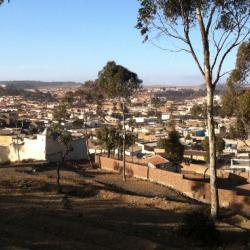
The essence of the Cambridge experience , however, is that the PhD candidate works closely with the PhD supervisor. He or she will help the candidate develop the thesis project through discussion and the review of draft materials presented by the candidate.
The process of working on the thesis will differ from candidate to candidate, depending on their project, their preferences and the style of supervision adopted. However, in general, it is expected that the first year will be devoted not only to completing the Research Methods modules, but also to the development of a detailed and well thought-through thesis outline and methodology. In particular, at the outset, the student should devote some time to considering how they will be making an original contribution to the field through their work.
As members of a research-oriented institution, Cambridge University academic staff are entitled to sabbatical leave . As a result, it is possible that in any particular term or year one of the members of the academic staff may be away. The University always endeavours to make appropriate arrangements for substitute teaching, but occasionally one or another option may be suspended during a staff member's leave.
By the end of the programme , candidates will have acquired excellent skills, experience and knowledge to undertake postdoctoral work (research, teaching or both) or another profession related to the field of development studies.
For details of the virtual Postgraduate Open Day, held in November each year: Postgraduate Open Day
The fees and funding page contains details of schemes specific to this course., the frequently asked questions page should cover anything else that the other pages have missed.
© 2024 University of Cambridge
- Contact the University
- Accessibility
- Freedom of information
- Privacy policy and cookies
- Statement on Modern Slavery
- Terms and conditions
- University A-Z
- Undergraduate
- Postgraduate
- Research news
- About research at Cambridge
- Spotlight on...
We use cookies to help our site work, to understand how it is used, and to tailor ads that are more relevant to you and your interests.
By accepting, you agree to cookies being stored on your device. You can view details and manage settings at any time on our cookies policy page.

EngD Practitioner Doctorate in Sustainability PhD/
Our Practitioner Doctorate in Sustainability PhD programme is aimed at high-achieving researchers and graduates whose vision is to become a sustainability leader in industry. You’ll receive in-depth industry experience with a bespoke taught programme of advanced technical and specialised business modules.
Key course information
September 2025 - full-time, september 2025 - part-time, why choose this programme.
The University of Surrey has been leading the way in environment and sustainability research for more than 30 years. The diversity of Surrey’s interests in this area of research, and the breadth of our staff’s expertise, means we can support PhD/EngD studies ranging across a full spectrum of sustainability research, including pure social science approaches, natural sciences and engineering. The majority of our research in these areas adopts multidisciplinary approaches, which we’ve pioneered for many years.
Our Practitioner Doctorate in Sustainability PhD/EngD allows you to pursue research studies at doctoral level while gaining invaluable research experience in a prestigious organisation external to the University, enabling you to apply your knowledge to real-life sustainability issues. You’ll have the unique opportunity to further your research knowledge in the academic field of sustainability and apply this to an external partner organisation.
This programme falls within our world-leading Centre for Environment and Sustainability (CES), which is internationally recognised for multidisciplinary research and teaching across all areas of sustainability. Collaborative research is carried out across the University, giving you an excellent opportunity to learn from, and contribute to, this vital domain of human development.
Programme details Open
What you will study.
On this programme, you will further your research knowledge in the academic field of sustainability and apply this to a real challenge, spending most of your time with an external partner organisation.
You’ll be based at the University for the first 12 weeks of the programme. In this time, you’ll undertake a series of sustainability modules and personal development workshops, which will equip you for your time in industry. You’ll then move to your industry premises where you’ll integrate into the company, making your applied research relevant to the company and potentially the wider sector.
You’ll have two academic supervisors, one from CES and one from another relevant University department or school. You’ll also have an industry supervisor, who’ll work alongside you on a day-to-day basis. The academic role of the supervisors is to guide and help train you in becoming an independent researcher whose thesis and associated publications and conference presentations make a contribution to academic and practical knowledge. You’ll collaborate closely with your supervisors, who’ll monitor your research progress through monthly and formal appraisals.
You’ll also have the opportunity to complete four specified taught modules from one of our CES masters programmes to qualify for the Institute of Environmental Management and Assessment (IEMA) professional membership at Associate level. Completion of the PhD also gives you a strong foundation to apply for the Managerial Full IEMA membership and Chartered Environmentalist level. Depending on the focus of your PhD research, it would similarly provide a strong foundation for chartered status with other professional bodies, such as those in engineering.
Each year, researchers come together for a variety of events including our annual conference, the Roland Clift Lecture , a writing retreat, the CES retreat, and various seminars and training activities.
Your final assessment will be based on the presentation of your research in a written thesis, which will be discussed in a viva examination with at least two examiners. You have the option of preparing your thesis as a monograph (one large volume in chapter form) or in publication format (including chapters written for publication), subject to the approval of your supervisors.
The programme is assessed by formal progress reports at six-monthly intervals, a confirmation report and the final assessment.
Stag Hill is the University's main campus and where the majority of our courses are taught.
Research areas Open
Research themes.
The areas our research students work on include:
- Sustainable development policies and practices
- Energy, water and food nexus
- Behaviour change
- Waste systems
- Sustainable transportation
- Built environment
- Bioenergy with carbon capture and storage
- Smart local energy systems
- Social research on sustainability
- Lifestyles and resource consumption
- Resource consumption and land use
- Vertical farming
- Sustainable systems: design and modelling
- Life cycle assessment (LCA), including social LCA and life cycle costing
- Carbon and water footprinting
- Low-carbon energy supply
- Developing futures pathways
- Energy demand and efficiency
- Policy and strategy: for governments and businesses
- International development and sustainability.
Research areas
- Policy, strategy and governance
- Sustainable systems
Academic staff Open
See a full list of all our academic staff within the Centre for Environment and Sustainability.
Support and facilities Open
Research support.
The professional development of postgraduate researchers is supported by the Doctoral College , which provides training in essential skills through its Researcher Development Programme of workshops, mentoring and coaching. A dedicated postgraduate careers and employability team will help you prepare for a successful career after the completion of your PhD.
Hear from our students Open
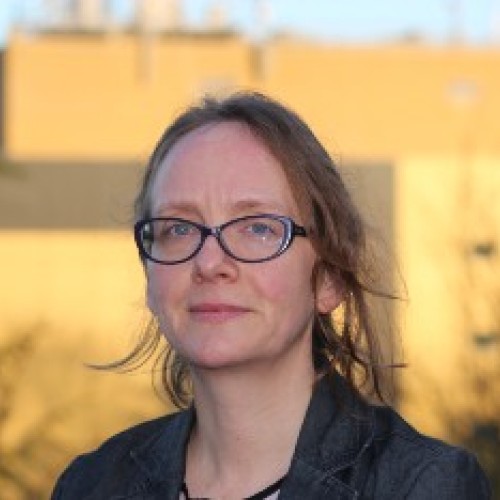
Student - Practitioner Doctorate in Sustainability PhD/ EngD
"Surrey was my first choice because I’d read some of the research outputs from the Centre for Environment and Sustainability and the Centre for the Understanding of Sustainable Prosperity . I liked how they worked in an interdisciplinary way that is solution oriented.
Entry requirements Open
Country-specific qualifications, international students in the united kingdom.
Applicants are expected to hold a first or upper second-class (2:1) UK degree in a relevant discipline (or equivalent overseas qualification), or a lower-second (2:2) UK degree plus a good UK masters degree - distinction normally required (or equivalent overseas qualification).
English language requirements
IELTS Academic: 6.5 or above (or equivalent) with 6.0 in each individual component.
These are the English language qualifications and levels that we can accept.
If you do not currently meet the level required for your programme, we offer intensive pre-sessional English language courses , designed to take you to the level of English ability and skill required for your studies here.
Selection process
Selection is based on applicants:
- Meeting the expected entry requirements
- Being shortlisted through the application screening process
- Completing a successful interview
- Providing suitable references.
Due to the challenging nature of the research projects and the fact that doctoral practitioners will work at the partner organisation’s premises, it is likely that candidates with some work experience (e.g., at least a year of professional training that is assessed and integrated into the degree programme) will have an advantage in the selection process.
Fees and funding Open
Fees per year.
Explore UKCISA’s website for more information if you are unsure whether you are a UK or overseas student. View the list of fees for all postgraduate research courses.
- Annual fees will increase by 4% for each year of study, rounded up to the nearest £100 (subject to legal requirements).
- Any start date other than September will attract a pro-rata fee for that year of entry (75 per cent for January, 50 per cent for April and 25 per cent for July).
Additional costs
There are additional costs that you can expect to incur when studying at Surrey.
A Postgraduate Doctoral Loan can help with course fees and living costs while you study a postgraduate doctoral course.
How to apply
In order to be on this research course, you will first have to apply for a relevant studentship, and then will be enrolled onto this course following a successful studentship application.
All studentship opportunities are subject to industry funding. Positions will therefore be advertised on the studentships site , FindAPhD , jobs.ac.uk , and via Twitter , once a project has been agreed between the programme and the relevant company concerned.
Applications will be via email only until the interview process has been completed. All studentships start in September and there are no other starting points during the year.
About the University of Surrey

Accommodation
We have a range of housing to suit all requirements and budgets. There are more than 6,000 rooms available (en-suite, single-sex, studio flat, shared or single).

Student life
At Surrey we offer a friendly university campus set in beautiful countryside, with the convenience and social life of bustling Guildford on your doorstep.
Need more information?
Contact our Admissions team or talk to a current University of Surrey student online.
Code of practice for research degrees
Surrey’s postgraduate research code of practice sets out the University's policy and procedural framework relating to research degrees. The code defines a set of standard procedures and specific responsibilities covering the academic supervision, administration and assessment of research degrees for all faculties within the University.
Download the code of practice for research degrees (PDF) .
Terms and conditions
When you accept an offer to study at the University of Surrey, you are agreeing to follow our policies and procedures , student regulations , and terms and conditions .
We provide these terms and conditions in two stages:
- First when we make an offer.
- Second when students accept their offer and register to study with us (registration terms and conditions will vary depending on your course and academic year).
View our generic registration terms and conditions (PDF) for the 2023/24 academic year, as a guide on what to expect.
This online prospectus has been published in advance of the academic year to which it applies.
Whilst we have done everything possible to ensure this information is accurate, some changes may happen between publishing and the start of the course.
It is important to check this website for any updates before you apply for a course with us. Read our full disclaimer .

Sustainable Construction MPhil/PhD
London, Bloomsbury
With a strong multidisciplinary approach, PhD research at The Bartlett School of Sustainable Construction covers a breadth of topics related to management, economics and finance of the built environment.
UK tuition fees (2024/25)
Overseas tuition fees (2024/25), programme starts, applications accepted.
- Entry requirements
A minimum of an upper second-class UK Bachelor's degree and a Master's degree, or an overseas qualification of an equivalent standard, in a relevant subject, is essential. Exceptionally: where applicants have other suitable research or professional experience, they may be admitted without a Master's degree; or where applicants have a lower second-class UK Honours Bachelor's degree (2:2) (or equivalent) they must possess a relevant Master's degree to be admitted. We expect any successful application to include a sufficiently strong and convincing proposal, and those holding a Master's degree are typically well prepared to provide one. Relevant work experience is highly desirable.
The English language level for this programme is: Level 1
UCL Pre-Master's and Pre-sessional English courses are for international students who are aiming to study for a postgraduate degree at UCL. The courses will develop your academic English and academic skills required to succeed at postgraduate level.
Further information can be found on our English language requirements page.
Equivalent qualifications
Country-specific information, including details of when UCL representatives are visiting your part of the world, can be obtained from the International Students website .
International applicants can find out the equivalent qualification for their country by selecting from the list below. Please note that the equivalency will correspond to the broad UK degree classification stated on this page (e.g. upper second-class). Where a specific overall percentage is required in the UK qualification, the international equivalency will be higher than that stated below. Please contact Graduate Admissions should you require further advice.
About this degree
Enterprise and Project Management
These are management and organisation studies comprising areas such as strategic management, innovation, project management, leadership and organisational behaviour. The School has a tradition of carrying out management and organisation research in the built environment, including project-based firms, construction projects, complex and mega projects, infrastructure, governance, quantity surveying, building information modelling, digital transformation, supply chain, social networks, project-based networks, organisational, social and consumer psychology, sustainability, and professionalism.
Economics and Finance of the Built Environment
This area of research includes construction economics, infrastructure economics and finance, real estate economics and finance, real estate development, housing, climate change economics, development economics, public economics, economic history, behavioural economics, big data.
Who this course is for
We welcome PhD and MPhil proposals from outstanding applicants related to the above research topics. The research degrees of PhD and MPhil are awarded for the most advanced level of study available at UCL. The aim is to make an original contribution to knowledge leading to the enhancement of academia and practice. Academic record and research interest are key criteria for candidate acceptance.
What this course will give you
In REF 2021 , 91% of research in The Bartlett was deemed ‘World Leading’ and ‘Internationally Excellent’ and it was number one for Research Power in the built environment. Within the national results, The Bartlett accounts for the largest submission to the discipline across the UK; 725 examples of interdisciplinary and collaborative research from 332 colleagues were submitted and all of the 12 case studies submitted by The Bartlett were deemed to be internationally excellent and world leading.
We recruit students who are highly motivated and qualified, willing to push the boundaries of knowledge and effect real- world change. We are proud of the diversity of our research programmes, both in terms of student backgrounds and research projects.
We recruit students who are highly motivated and qualified, willing to push the boundaries of knowledge and effect real-world change. We are proud of the diversity of our research programmes, both in terms of student backgrounds and research projects.
The foundation of your career
The programme is intended to supply graduate PhD students with expertise in areas including economics and finance of the built environment, management of project enterprises and project-based networks.
Employability
Many of our PhD students have secured academic positions in top universities and jobs as leading practitioners in major organisations of the private and public sector.
We provide a number of networking opportunities for our students, including social events, lectures, collaborative projects and visits, team-building and student-led conferences.
Teaching and learning
Initially, you will be registered for the MPhil degree. If you wish to proceed to a PhD, you will be required to pass an 'Upgrade' assessment. The purpose of the Upgrade is to assess your progress and ability to complete your PhD programme to a good standard and in a reasonable time frame. It is expected that a full-time student will undertake the Upgrade assessment within 18 months of registration (30 months for part-time students).
The Doctor of Philosophy (PhD) involves supervised research normally undertaken over a period of four years full-time (including 1-year Completing Research Status) or seven years part-time (including 2-year Completing Research Status). Assessment is by means of a thesis, which should demonstrate your capacity to pursue original research based upon a good understanding of the research techniques and concepts appropriate to the discipline.
Flexible learning and self directed study are in the direction of our students with support from staff and academics.
Research areas and structure
The main areas of research undertaken by the school are listed below:
- Project and programme management
- Facilities and built asset management
- Real estate
- Modern methods of industrialised construction
- Climate change and sustainability
Research environment
The Bartlett School of Sustainable Construction is a centre for interdisciplinary research in infrastructure economics, infrastructure finance and management, construction economics, urban and housing economics, real estate finance, and project management including innovation, learning, risk management, leadership, marketing, financing, project-based enterprises. We are part of the Bartlett, UCL's Faculty of the Built Environment, the top institution in its field in the UK (REF 2021) for 'research power'.
We are proud with the diversity of our programme, both in terms of interdisciplinary research domains and student background. Our PhD students usually conduct research in the following areas:
These are management and organisation studies comprising areas such as strategic management, innovation, project management, leadership and organisational behaviour. The School has a tradition of carrying out management and organisation research in the built environment (project-based firms, construction projects, complex and mega projects, infrastructure, governance, quantity surveying, building information modelling, digital transformation, supply chain, social networks, project-based networks, organisational, social and consumer psychology, sustainability, and professionalism).
The programme emphasises close staff-student collaboration in research and offers a variety of research seminars and training activities that are intended to equip you with advanced research skills and competences. It is intended that you will take part in research events and meetings with academics and practitioners and contribute to a thriving academic community. If you are funded by the School, usually you will contribute to teaching and related duties for approximately 25% of your time. Academics and students typically interact to stimulate ideas, and develop and hone conceptual understanding and analysis, with the aim of generating original contributions to knowledge.
The length of registration for the research degree programmes is normally 3 years for full-time and 5 years for part-time. You will normally register initially for the MPhil degree with the expectation of transfer to PhD after successful completion of an 'upgrade' assessment, typically at the end of your first year and no later than eighteen months from registration (full-time).
During your first year your supervisor may advise you to attend specific skills training courses offered by UCL. In addition, the School normally offers its PhD students an Induction event, two PhD study days and regular seminars in our key research areas.
By the end of the second year, it is expected that you will have written at least half of your thesis. You are usually required to attend conferences, submit conference articles and organise PhD events.
In the third year you are normally required to analyse your key findings and form conclusions about them to write up your thesis.
The PhD programme is expected to be completed within three years for full-time students, and over five years for part-time students. Upon successful completion of your approved period of registration you may be permitted to register with Completing Research Status (CRS) while you write up your thesis (one year full-time or two years part-time registration).
Primarily, you are expected to conduct independent research, with guidance and supervision. The programme places emphasis on a close one-to-one working relationship between you and your supervisor. Your supervisor may suggest that you enrol in, or audit, an additional taught module. Taught models do not form part of your MPhil/PhD programme and so are not formally assessed.
Accessibility
Details of the accessibility of UCL buildings can be obtained from AccessAble accessable.co.uk . Further information can also be obtained from the UCL Student Support and Wellbeing team .
Fees and funding
Fees for this course.
| Fee description | Full-time | Part-time |
|---|---|---|
| Tuition fees (2024/25) | £6,035 | £3,015 |
| Tuition fees (2024/25) | £28,100 | £14,050 |
Additional costs
There is no application fee for this programme.
As a research student, your additional costs may include expenses such as books, conference attendance and field research, in the UK or overseas.
For more information on additional costs for prospective students please go to our estimated cost of essential expenditure at Accommodation and living costs .
Funding your studies
UCL offers a range of financial awards aimed at assisting both prospective and current students with their studies.
In our faculty, The Bartlett Promise Scholarship aims to enable students from backgrounds underrepresented in the built environment to pursue master's studies. Please see the Bartlett Promise PhD Scholarship pages for more information on eligibility criteria, selection process and FAQs.
Any additional funding available from The Bartlett School of Sustainable Construction and the Built Environment Faculty Office are advertised on the respective websites.
For a comprehensive list of the funding opportunities available at UCL, including funding relevant to your nationality, please visit the Scholarships and Funding website .
Candidates apply online (not via email) with a personal statement and a full research proposal showing academic rigour. Further documents needed for the online application include a CV, two references of which at least one should be academic, academic transcripts provided in English and in electronic format, proof of English language proficiency and an application fee.
Please note that you may submit applications for a maximum of two graduate programmes (or one application for the Law LLM) in any application cycle.
Choose your programme
Please read the Application Guidance before proceeding with your application.
Year of entry: 2024-2025
Got questions get in touch.

Bartlett School of Sustainable Construction
UCL is regulated by the Office for Students .
Prospective Students Graduate
- Graduate degrees
- Taught degrees
- Taught Degrees
- Applying for Graduate Taught Study at UCL
- Research degrees
- Research Degrees
- Funded Research Opportunities
- Doctoral School
- Funded Doctoral Training Programmes
- Applying for Graduate Research Study at UCL
- Teacher training
- Teacher Training
- Early Years PGCE programmes
- Primary PGCE programmes
- Secondary PGCE programmes
- Further Education PGCE programme
- How to apply
- The IOE approach
- Teacher training in the heart of London
- Why choose UCL?
- Entrepreneurship
- Inspiring facilities and resources
- Careers and employability
- Your global alumni community
- Your wellbeing
- Postgraduate Students' Association
- Your life in London
- Accommodation
- Funding your Master's

Research opportunities
Environment and development.
Expertise of research area biodiversity; climate change; ecosystem services; environmental degradation; human wellbeing; livelihoods; natural resource management; resilience; sustainable development
Staff within the Environment and Development Research Group of the Sustainability Research Institute are keen to hear from prospective students interested in conducting interdisciplinary research across the natural and social science. There will be a focus on the relationship between the environment and human development.
<p>The world faces serious and rapidly evolving environmental challenges. Climate change, deforestation, land degradation, food insecurity, environmental pollution, water scarcity and biodiversity loss are all high on political agendas.</p> <p>Simultaneously achieving development that does not exacerbate environmental degradation – and that is both economically fair and socio-politically just – is a major challenge, from local levels to global ones. </p> <p>PhD research within this field has the potential to develop deeper understanding of the simultaneous challenges we face, and critically explore options to tackle them. You will work alongside academics at the forefront of their subject as you develop your own research.</p> <p>Staff and students in the <a href="https://environment.leeds.ac.uk/sustainability-research-institute/doc/environment-development-1">Environment and Development Research Group</a> have expertise across the natural and social sciences. They work on issues relating to conservation, adaptation, governance, sustainable land management and development, with a particular focus on drylands, forests and agricultural systems in the Global South.</p> <p>We specialise in participatory, action-oriented research that brings together government, business, NGOs and local communities. This enhances the relevance, quality and practical influence of our research.</p> <p>We encourage PhD proposals that align with the <a href="https://environment.leeds.ac.uk/sustainability-research-institute/doc/environment-development-1">research undertaken by staff in the Environment and Development Research Group</a>.</p> <p>Our current research cuts across several key themes: </p> <ul> <li>biodiversity and society </li> <li>environmental degradation and development</li> <li>rural livelihoods, human wellbeing and the environment</li> <li>climate-compatible development, climate-resilient development pathways, climate change adaptation and mitigation</li> <li>sustainable and resilient agriculture and food systems</li> <li>natural resource governance and politics</li> </ul> <p>We encourage students to develop novel interdisciplinary approaches as well as cross-institutional partnerships, to enable direct research impact from their work. </p> <p>Postgraduate researchers are supervised by at least two academic members of staff. Co-supervision can be sought from within the <a href="https://environment.leeds.ac.uk/sustainability-research-institute">Sustainability Research Institute</a>, other research institutes (eg the Institute for Climate and Atmospheric Studies) or centres (eg the Priestley International Centre for Climate) hosted within the <a href="https://environment.leeds.ac.uk/see-research-innovation">School of Earth and Environment</a>. Cross-faculty/school co-supervision is also possible. Common supervisory alliances include the <a href="https://environment.leeds.ac.uk/geography">School of Geography</a> and the <a href="https://essl.leeds.ac.uk/politics">School of Politics and International Studies</a>. </p> <h5>Why do your PhD at Leeds?</h5> <p><strong>Study in an active research environment </strong><br /> Studying your PhD with us means you’ll be working in a professional research environment, using UK-leading facilities to bring your project to life – alongside active researchers who are at the forefront of their area. <br /> <strong>A strong network of support </strong><br /> The Leeds Doctoral College connects our community of researchers and can offer you the guidance, services and opportunities you’ll need to get the most out of your PhD. <br /> <strong>Close industry links </strong><br /> Our partnerships and links to companies and academic institutions give you the opportunity to network at industry talks, seminars and conferences, building connections that'll benefit your next steps after you complete your PhD. <br /> <strong>Professional skills development </strong><br /> We think of the whole picture at Leeds. That’s why we offer a range of workshops and courses that'll enhance your skillset further and transfer into your professional career. <br /> <strong>Personal and wellbeing services </strong><br /> Mental health and wellbeing support are integral to who we are at Leeds and you’ll have access to the full range of services we offer to ensure you’re feeling your best – and reaching your potential in your studies. <br /> <strong>Join our global community </strong><br /> We welcome students, researchers, academics, partners and alumni from more than 140 countries, all over the world. This means, as a university, we’re bringing together different cultures and perspectives which helps strengthen our research – and societal impact.</p> <h3>Useful links and further reading:</h3> <ul> <li><a href="https://environment.leeds.ac.uk/see-research-degrees">Research degrees within the School of Earth and Environment</a></li> <li><a href="https://environment.leeds.ac.uk/sustainability-research-institute/doc/environment-development-1">Environment and Development group</a></li> <li><a href="https://environment.leeds.ac.uk/see-research-innovation">School of Earth and Environment, Research and Innovation</a></li> </ul> <h3>Leeds Doctoral College</h3> <p>Our <a aria-label="Link Doctoral College" href="https://www.leeds.ac.uk/research-leeds-doctoral-college" rel="noreferrer noopener" target="_blank" title="https://www.leeds.ac.uk/research-leeds-doctoral-college">Doctoral College</a> supports you throughout your postgraduate research journey. It brings together all the support services and opportunities to enhance your research, development and overall experience.</p>
<p>Formal applications for research degree study should be made online through the <a href="https://www.leeds.ac.uk/research-applying/doc/applying-research-degrees">University's website</a>.</p>
<p>For queries relating to your research proposal or subject area, please contact <a href="https://environment.leeds.ac.uk/see/staff/1517/dr-susannah-m-sallu">Dr Susannah Sallu</a>.</p> <p>For general enquiries and details regarding the application process, please contact the Graduate School Office:<br /> e: <a href="mailto:[email protected]">[email protected]</a>, t: +44 (0)113 343 1314.</p>
Please enable JavaScript in your web browser to get the best experience.
Main navigation
Mphil/phd in international development.

- Jump to: Key information
- Jump to: Course overview
- Jump to: Structure
- Jump to: Teaching and learning
- Jump to: Fees and funding
- Jump to: Employment

Key information
Home student fees (full-time) : £4,860 per year Home student fees (part-time) : £2,430 per year Overseas student fees (full-time) : £22,490 per year Overseas student fees (part-time) : £11,245 per year
Please note that fees go up each year. See research fees for further details.
We normally require a 2.1 bachelor's degree plus a Masters degree with a Merit classification in a Social Science plus one reference. In exceptional cases we may accept applicants who do not meet these criteria if they show evidence of a strong Masters degree and/or appropriate level of relevant work experience. International applicants should also see Doctoral School English language requirements .
Identifying a supervisor
Potential applicants are advised to personally discuss their (draft) research proposal with (a) potential supervisor(s) (see departmental staff list ) and sound their willingness to supervise. This significantly increases the chance of a successful admission application.
Course overview
Study our on-campus MPhil/PhD in International Development Studies at SOAS to realise your potential to define and solve pressing global forces and transform the world with your research impact.
As a PhD researcher, you’ll join our renowned globally diverse research community with access to research and teaching opportunities, as well as a substantial series of seminars presented by leading development professionals and practitioners.
Students may follow the PhD pathway in International Development by being based at either SOAS, LSHTM or IoE. All PhD students on the International Development pathway will attend an advanced research training seminar run by LIDC.
The series will provide students in the ESRC Doctoral Training Centre's International Development Pathway with a broad understanding of interdisciplinary approaches to development, and a detailed understanding of selected areas of interest.
All MPhil/PhD in International Development research students will participate in the compulsory course work and attend research student seminars in the college and department where they are registered for the MPhil/PhD. At SOAS the Economics and Development Studies departments hold seminar series and students will be expected to involve themselves in the work of the relevant research clusters.
Admissions process
There are three admissions routes to the MPhil and PhD in International Development:
- The 1+3 structure: Following successful completion of the MSc Research for International Development at SOAS. ESRC 1+3 studentships are available to fund this route.
- The +3 structure: By direct applications for MPhil/PhD in International Development admission . ESRC 1+3 studentships are available to fund route.
- The 4 structure: not currently available at SOAS.
Why study MPhil/PhD in International Development at SOAS?
- We are ranked second in the world for Development Studies (QS World University Rankings 2023)
- We are ranked 27th in UK for Economics (QS World University Rankings 2023)
- We are top 40 in the UK for Economics (Complete University Guide 2023)
- This is an on-campus programme, as such you will receive the benefit of learning and working in close proximity with the Department's expert scholars and researchers
- Our academic staff create an intellectually stimulating and challenging space across the many branches of international development and humanitarianism that make up Development Studies. All modules engage with questions of climate crisis, recognising its impact and interaction with processes of inequality and change
- Our staff specialise in a range of thematic areas including sustainability and climate change, migration and displacement, conflict, humanitarian action, labour, political ecology, and aid and institutions
- Combined with exceptional resources and our interdisciplinary approach, we offer a unique learning and research opportunity for our diverse and vibrant student community
This course has been created to:
- encourage and enable students to complete an original thesis in the expected time
- provide training and experience in fieldwork and across a variety of schools of thought and in a variety of statistical techniques
- allow flexibility in training to suit students with different backgrounds and subsequent research needs
- make available and to monitor first class research supervision with the involvement of at least two members of staff through individual Research Student Committees
- encourage knowledge of other relevant disciplines and the adoption of an interdisciplinary approach where appropriate
- equip students with the ability to assess one another's work critically, whether in response to written or spoken presentation
- obtain language skills as appropriate
- ensure a congenial and productive environment for the conduct of research through availability of a wide range of facilities and full participation in the intellectual life of the Department and School. Library facilities are outstanding and computing facilities are attuned to student needs
- emphasise the relevance of research to theoretical, empirical and policy issues
- draw upon the Department's particular strengths, especially its expertise in different approaches to economic problems and its experience in problems of development, specific regions, and comparative analysis
- involve students in the specialised Centres of the School where appropriate
- form part of the academic community of the Department, participating where appropriate in collaborative research with members of staff, with some opportunities for teaching
- offer unique opportunities for interdisciplinary and regional research, and the scope to learn or improve a language where appropriate
Important notice
The information on the website reflects the intended programme structure against the given academic session. The modules are indicative options of the content students can expect and are/have been previously taught as part of these programmes. However, this information is published a long time in advance of enrolment and module content and availability is subject to change.
Teaching and learning
Supervision.
1. The role of the second and third members of the Supervisory Committee (SC) will be focused on the following two core tasks:
- Participate in the upgrade process of the student, including the final decision relating to his/her transfer from MPhil to PhD.
- Participate in other decisions relating to his/her eligibility for enrolment on Extension of Writing-up (Continuation) Status or, where necessary, termination of registration.
2. In addition to these core roles, the second and third members of the SC may be expected to:
- Enhance or augment the supervision of the student by contributing additional guidance and expertise, if required/sought by the student and/or the supervisor throughout the time of active research.
- To act on behalf of the supervisor during unforeseen periods of absence. This role will have to be agreed by consent of all parties (student, supervisor and the two members of the SC) and one of the two members will be designated as cover in absence for the period in question.
3. Only rarely is joint supervision allowed, for which a strong case would need to be made. Whilst the primary responsibility for guiding student's research and to review written work and progress rests with the supervisor once upgrade is successfully completed, other members of the supervisory committee must receive student’s thesis drafts at appropriate times, with support also available to students from the Departmental Empirical Support Committee (DESC).
Part-time students
Part-time students are expected to follow the same programme as the full-time students, except that they will take the initial training over two years instead of one. The Research Student Seminar and Departmental Seminars take place in the early evening to allow students in full-time employment to attend. Supervision is available in the evenings where necessary, and research student committees consider the progress of part- time students as regularly as for full-time students.
Computing facilities
Full computing facilities are available to postgraduate students. Computers dedicated for the use of research students in the Economics Department are also available. Software includes word-processing, specialised statistical, econometrics and spreadsheet packages. The Schools' computing staff are on hand to assist with general computing problems.
SOAS Library
SOAS Library is one of the world's most important academic libraries for the study of Africa, Asia and the Middle East, attracting scholars from all over the world. The Library houses over 1.2 million volumes, together with significant archival holdings, special collections and a growing network of electronic resources.
Scholarships
| Title | Deadline date |
|---|---|
Fees and funding
Fees for 2023/24 entrants per academic year.
| Home students | Overseas students | |
|---|---|---|
| Full-time | £4,860 | £21,630 |
| Part-time | £2,430 | £10,815 |
Please note that fees go up each year. See research fees for further details.
A degree from the Department of Development Studies at SOAS will further develop your understanding of the world and how society is organised, with specific focus on violence and conflict, the role of aid, refugees and forced migration. Graduates leave with a range of transferable skills, including critical thinking, analytical skills and cultural awareness.
Recent graduates have been hired by:
- Amnesty International
- BBC World Service
- British Embassy Brussels
- Department for International Development
- Economist Intelligence Unit (EIU)
- Embassy of Japan
- Government of Pakistan
- Hong Kong Economic & Trade Office
- International Committee of the Red Cross (ICRC)
- International Labour Organization (ILO)
- Médecins Sans Frontières (MSF)
- National Health and Medical Research Council
- Overseas Development Institute
- Royal Norwegian Embassy
- Save the Children UK
- The World Bank
- Thinking Beyond Borders
- US Department of State
- UN World Food Programme
- UN High Commissioner for Refugees
Find out about our Careers Service.
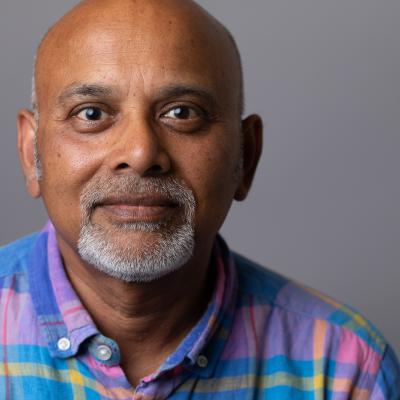
Dr Subir Sinha
South Asia; social movements; civil society; the environment; institutions; agrarian questions; Marxist and postcolonial theory; Social theory in Development studies.
SOAS Voices

Poverty, disasters and human trafficking: Unravelling the connection
New research highlights the invisible challenges faced by communities post-disaster, which creates an environment conducive to exploitation.
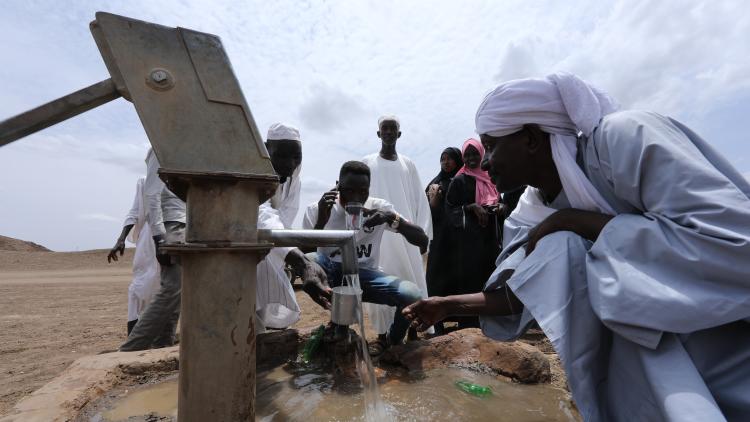
How to develop a career in the humanitarian sector
Oyessorzo studies MSc Humanitarian Action online while working in the humanitarian sector. She offers advice for anyone hoping to develop a career in humanitarianism.

Remitting through crisis: learning lessons from the pandemic
As the world confronts ongoing climate, conflict and cost-of-living problems, what can we learn from the pandemic period about people’s remittance practices through times of crisis?
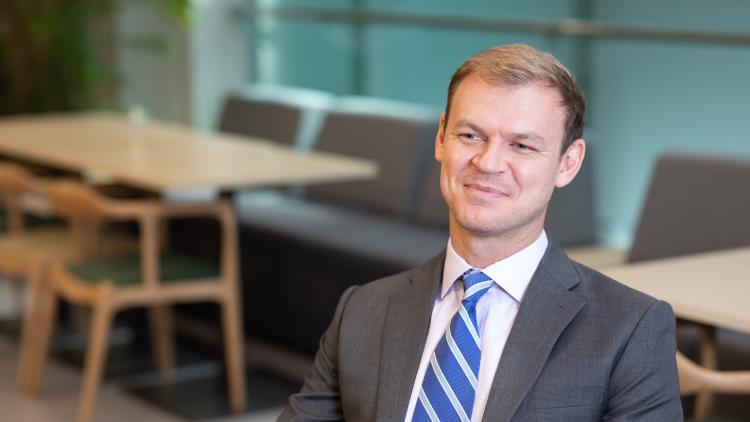
Careers: "Making a tangible difference in someone’s life is a really motivational concept"
Chris Bowden studied BA Swahili and Development Studies at SOAS and is now Head of Cargo - Global Partnerships at Cathay Cargo. We asked him about his time at SOAS and his career journey so far.
Ken Loach discusses austerity in neoliberal Britain

Tipping points: could this be the climate movement we need?
A global movement against the climate crisis has finally emerged, and it could be one of the most positive breakthroughs for social justice in a generation.
Border Crossings: Exploring history and community through virtual reality at the 75th anniversary of the Partition
Border Crossings examines how public narratives and memories of the 1947 partition are changing in Britain and how technology, specifically Virtual Reality (VR), can facilitate dialogue across generations and communities.
London International Development Centre Migration Leadership Team
Developing a shared and participatory global strategy for identifying and supporting migration research.
Research and Evidence Facility: Informing migration policy in the Horn of Africa
Collating and producing evidence and policy relevant knowledge to generate a better understanding of the drivers of instability, migration, and displacement in the greater Horn of Africa, and the dynamics of cross-border economies and centre/periphery relations.
Drugs & (dis)order
A SOAS-led consortium researching into the role of illicit drug economies in conflict-affected borderlands of Afghanistan, Colombia and Myanmar.
The AGRUMIG project: "Leaving something behind"
Studying comparatively the impact of large-scale labour out-migration on agricultural and rural change in seven countries (Morocco, Ethiopia, Moldova, Kyrgyzstan, Nepal, Thailand, PR China) to inform regionally specific combinations of rural development and migration policies.
Industrial Development, Construction and Employment in Africa (IDCEA): A comparative analysis
Exploring evidence on the employment effects of firms investing in manufacturing and building infrastructure in African economies.

Religious inequalities and heritage blind spots: Why transcendence matters for inclusive development
The talk will be about redressing discrimination experienced by people on the basis of faith and non-faith in its intersections with other inequalities, why freedom of religion or belief is such a blind spot in development and how our search for legitimacy may lead us to unconventional approaches of engagement, such as one informed by heritage-sensitivity.
Related content

Department of Economics
The Department of Economics at SOAS University London.

Department of Development Studies
Department of Development Studies at SOAS University of London.

MSc Climate Change and Development (Online)
MSc/PGDip/PGCert Climate Change and Development (Online) at SOAS University of London
School for Cross-faculty Studies Global Sustainable Development
Phd scholarships in global sustainable development: apply now.

Applications are now open for our PhD scholarships in Global Sustainable Development (GSD) for the academic year 2022/23.
About the scholarships
The Leverhulme Trust Doctoral Scholarships Programme, ‘ TRANSFORM: Transformations of Human-Environment Interactions to Sustainable Development ’, is led by the GSD Department in the School for Cross-faculty Studies .
Doctoral scholars will work on transdisciplinary projects that address a real-world sustainability challenge, under the supervision of at least two academics from different disciplines. Students will spend four years undertaking their research, joining the School’s MPhil/PhD in Global Sustainable Development .

“TRANSFORM will cultivate a new generation of leaders and critical thinkers to engage with global challenges of sustainability through a transdisciplinary approach.”
Dr Xiaodong Lin
Director of TRANSFORM
Research themes and projects
The research will be focused on the following themes :
- Climate resilience and socio-environmental justice
- Sustainable urbanisation, health and wellbeing
- Sustainable economies and the food-water-energy nexus
There are two routes for developing a project proposal when applying to the programme:
- Open Call Research Projects : Applicants submit their own project, approaching potential supervisors prior to application.
- Highlighted Thematic Projects : Applicants select from one of the highlighted research projects, led by a predefined supervision team.
Making an application
Applications close at 12 pm (GMT) on Monday 7 March 2022 . Applicants must apply to study the MPhil/PhD in Global Sustainable Development before submitting their TRANSFORM funding application. Find out more about how to apply.
Find out more about TRANSFORM
Frequently Asked Questions
Guidance for applying to TRANSFORM
TRANSFORM application form
Postgraduate study in the GSD Department
We offer a MASc in Global Sustainable Development and a MPhil/PhD in Global Sustainable Development.
Find out about our postgraduate programmes.
About the Leverhulme Trust
The Leverhulme Trust was established by the Will of William Hesketh Lever, the founder of Lever Brothers. Since 1925 the Trust has provided grants and scholarships for research and education. Today, it is one of the largest all-subject providers of research funding in the UK, currently distributing £100 million each year. For more information about the Trust, please visit www.leverhulme.ac.uk and follow the Trust on Twitter @LeverhulmeTrust .
- Interesting for you
- My settings
Sustainable Development in United Kingdom

Why Study Sustainable Development in United Kingdom
- Studying Sustainable Development in United Kingdom is a great choice, as there are 25 universities that offer PhD degrees on our portal.
- Over 551,000 international students choose United Kingdom for their studies, which suggests you’ll enjoy a vibrant and culturally diverse learning experience and make friends from all over the world.
- We counted 17 affordable PhD degrees in United Kingdom , allowing you to access quality higher education without breaking the bank. Moreover, there are 367 available scholarships you can apply to.
21 Sustainable Development PhDs in United Kingdom
Study in United Kingdom
Universities in the UK are some of the most highly regarded in the world, and for good reasons. Some of the world's most highly regarded research takes place in British universities, which are regularly featured in international rankings. While studying in the UK, you will be able to develop in a highly multicultural environment with high chances of pursuing lucrative careers after graduation. The teaching in the UK is designed to encourage new idea generation, encouraging individual research and group cooperation, through class discussions and creative assignments.
Is United Kingdom the right place for you?
Take the test and find out which country is your best fit.
Explore your Sustainable Development degree
Sustainable Development degrees prepare students to develop and promote systems that operate with minimal resource consumption, in a viable, need-fulfilling manner. Universities and colleges offer Sustainability degrees that aim at building sustainable human societies. Sustainable development degrees educate professionals involved in management, policy making and governance.
Is Sustainable Development the best for you?
Take the test and find out if Sustainable Development is the right path for you.
Sustainable Development Scholarships and Financial Aid in United Kingdom
Available Options
Go to your profile page to get personalised recommendations!

Study at Cambridge
About the university, research at cambridge.
- Undergraduate courses
- Events and open days
- Fees and finance
- Postgraduate courses
- How to apply
- Postgraduate events
- Fees and funding
- International students
- Continuing education
- Executive and professional education
- Courses in education
- How the University and Colleges work
- Term dates and calendars
- Visiting the University
- Annual reports
- Equality and diversity
- A global university
- Public engagement
- Give to Cambridge
- For Cambridge students
- For our researchers
- Business and enterprise
- Colleges & departments
- Email & phone search
- Museums & collections
- Course Directory
MPhil in Engineering for Sustainable Development
Postgraduate Study
- Why Cambridge overview
- Chat with our students
- Cambridge explained overview
- The supervision system
- Student life overview
- In and around Cambridge
- Leisure activities
- Student unions
- Music awards
- Student support overview
- Mental health and wellbeing
- Disabled students
- Accommodation
- Language tuition
- Skills training
- Support for refugees
- Courses overview
- Department directory
- Qualification types
- Funded studentships
- Part-time study
- Research degrees
- Visiting students
- Finance overview
- Fees overview
- What is my fee status?
- Part-time fees
- Application fee
- Living costs
- Funding overview
- Funding search
- How to apply for funding
- University funding overview
- Research Councils (UKRI)
- External funding and loans overview
- Funding searches
- External scholarships
- Charities and the voluntary sector
- Funding for disabled students
- Widening participation in funding
- Colleges overview
- What is a College?
- Choosing a College
- Applying overview
- Before you apply
- Entry requirements
- Application deadlines
- How do I apply? overview
- Application fee overview
- Application fee waiver
- Life Science courses
- Terms and conditions
- Continuing students
- Disabled applicants
- Supporting documents overview
- Academic documents
- Finance documents
- Evidence of competence in English
- AI and postgraduate applications
- Terms and Conditions
- Applicant portal and self-service
- After you apply overview
- Confirmation of admission
- Student registry
- Previous criminal convictions
- Deferring an application
- Updating your personal details
- Appeals and Complaints
- Widening participation
- Postgraduate admissions fraud
- International overview
- Immigration overview
- ATAS overview
- Applying for an ATAS certificate
- Current Cambridge students
- International qualifications
- Competence in English overview
- What tests are accepted?
- International events
- International student views overview
- Akhila’s story
- Alex’s story
- Huijie’s story
- Kelsey’s story
- Nilesh’s story
- Get in touch!
- Events overview
- Upcoming events
- Postgraduate Open Days overview
- Discover Cambridge: Master’s and PhD Study webinars
- Virtual tour
- Research Internships
- How we use participant data
- Postgraduate Newsletter
Primary tabs
- Overview (active tab)
- Requirements
- How To Apply
- Testimonials
Course closed:
Engineering for Sustainable Development is no longer accepting new applications.
The Engineering for Sustainable Development MPhil course is designed for graduates who want to help tackle pressing global problems by developing practical engineering solutions. The course is about recognising that engineers have to operate within an increasingly complex set of constraints, and therefore must be capable of dealing with a range of challenges. The subject is based on some very straightforward principles: it is about living within Earth’s finite limits and resources, helping everyone on the planet to achieve an acceptable quality of life; acting as stewards of the environment for future generations; dealing with complexity, and handling the many trade-offs which have to be made.
The programme aims to:
- produce engineers who are equipped to lead change with the understanding and skills necessary to conceive and deliver fitting solutions to society’s needs and to address global challenges within a sustainability framework;
- explore value frameworks for engineers which are based on the concepts behind sustainable development and which can guide the design and management of engineering artefacts and schemes, so that their impacts are addressed at every stage of planning, implementation and disposal;
- develop strong business awareness in engineering graduates and foster an understanding of the introduction of change within organisations;
- encourage a multidisciplinary approach to problem formulation so that through a dialogue with other subject specialists suitable solutions can be developed and wider constraints on engineering activity can be understood, including awareness of natural, business and social environments;
- encourage an appreciation of the trade-offs and conflicts inherent in decision-making the need to seek wider and alternative solutions to engineering problems so that graduates of the course can engage in strategic thinking during their future employment within the industry, business or government; and
- move beyond a reductionist approach to problem-solving by recognising a complex systems view of problem formulations.
Learning Outcomes
Graduates of the MPhil programme will be equipped with the knowledge and skills they need to meet the challenges of engineering work in a sustainable development context.
By the end of the programme, they will have knowledge and understanding of the following:
- fundamental concepts of environmental impact, social responsibility and economic accountability;
- sustainable development frameworks and wider issues relating to sustainable development and how these can be influenced by engineers;
- a range of metrics, evaluation methodologies and procedures for evaluating the merits and demerits of options, and their limitations – enabling students to account for environmental, economic, financial, political and technical factors;
- current and potential engineering responses for moving to sustainable development, recognising both the technical and non-technical barriers to change, and of both good and bad sustainability practice in a range of engineering sectors;
- exemplified theories about organisational change, including tools for analysis and development of change strategies – equipping students to act as change-agents and to manage change effectively within organisations.
Graduate will have developed skills in the following areas:
- working with complex or ill-defined problems both systematically and creatively;
- decision-making in the absence of complete information or evidence;
- accommodating environmental limits through resource efficiency, pollution control and maintaining ecosystem services;
- dealing with whole life costs by considering project externalities and life-cycle management;
- harmonious teamworking, two-way communication, enabling students to build multi-disciplinary teams, and to engage in dialogue, consultation and negotiation in order to meet the needs of both society and stakeholder groups;
- dealing with trade-offs and creating solutions acceptable to all by avoiding optimisation around a single variable;
- planning, executing and critically evaluating original investigative work through production of a research dissertation.
The MPhil is a professional practice programme and is not specifically designed to lead on to doctoral research. Nevertheless, students wishing to apply for a PhD in Engineering at Cambridge would normally be expected to attain an overall mark of at least 70 percent.
The Postgraduate Virtual Open Day usually takes place at the end of October. It’s a great opportunity to ask questions to admissions staff and academics, explore the Colleges virtually, and to find out more about courses, the application process and funding opportunities. Visit the Postgraduate Open Day page for more details.
See further the Postgraduate Admissions Events pages for other events relating to Postgraduate study, including study fairs, visits and international events.
Key Information
11 months full-time, study mode : taught, master of philosophy, department of engineering, course - related enquiries, application - related enquiries, course on department website, dates and deadlines:, michaelmas 2024 (closed).
Some courses can close early. See the Deadlines page for guidance on when to apply.
Funding Deadlines
These deadlines apply to applications for courses starting in Michaelmas 2024, Lent 2025 and Easter 2025.
Similar Courses
- Industrial Systems, Manufacture, and Management MPhil
- Energy Technologies MPhil
- Technology Policy MPhil
- Nuclear Energy MPhil
- Photonic and Electronic Systems EPSRC CDT PhD
Postgraduate Admissions Office
- Admissions Statistics
- Start an Application
- Applicant Self-Service
At a glance
- Bringing a family
- Current Postgraduates
- Cambridge Students' Union (SU)
University Policy and Guidelines
Privacy Policy
Information compliance
Equality and Diversity
Terms of Study
About this site
About our website
Privacy policy
© 2024 University of Cambridge
- Contact the University
- Accessibility
- Freedom of information
- Privacy policy and cookies
- Statement on Modern Slavery
- University A-Z
- Undergraduate
- Postgraduate
- Research news
- About research at Cambridge
- Spotlight on...
- International
Sustainable protein production for therapeutic and biotechnological applications (WILKINSON_J24CASE)
Key Details
Project Overview
Primary supervisor - Professor Barrie Wilkinson
Secondary supervisor - Professor Matt Hutchings (JIC)
Streptomyces spp. are characterised by a complex secondary metabolism which is the basis of many agrichemicals and clinical pharmaceuticals including almost half of all antibiotics. They also offer an alternative to E. coli and yeast to develop a new protein and peptide production platform with industrial application, especially to produce otherwise difficult to manufacture proteins and peptides with therapeutic, agrichemical and biotechnological applications. This will be the focus of the project.
The successful candidate will have access to cutting-edge research facilities within the John Innes Centre as well as a stimulating interdisciplinary research and training environment, and they will gain an excellent foundation in biochemistry, protein production, molecular microbiology, synthetic biology, chemical biology and enzymology.
They will also work closely with the team at a leading UK biotechnology company with whom they will interact extensively. As such the project offers an opportunity to learn a plethora of techniques and research approaches, and the combination of skills and experience provided by this studentship will make the successful candidate highly employable in both academia and industry.
The Norwich Research Park (NRP) Biosciences Doctoral Training Programme (DTP) is offering fully-funded studentships for October 2024 entry. The programme offers postgraduates the opportunity to undertake a 4-year PhD research project whilst enhancing professional development and research skills through a comprehensive training programme. You will join a vibrant community of world-leading researchers. All NRPDTP students undertake a three-month professional internship placement (PIPS) during their study. The placement offers exciting and invaluable work experience designed to enhance professional development. Full support and advice will be provided by our Professional Internship team. Students with, or expecting to attain, at least an upper second class honours degree, or equivalent, are invited to apply.
This project has been shortlisted for funding by the NRPDTP. Shortlisted applicants will potentially be interviewed on either the 14 or 15 August 2024.
For further information on eligibility and how to apply please visit here .
Our partners value diverse and inclusive work environments that are positive and supportive. Students are selected for admission without regard to gender, marital or civil partnership status, disability, race, nationality, ethnic origin, religion or belief, sexual orientation, age or social background.
At least UK equivalence Bachelors (Honours) 2:1 or UK equivalence Master's degree. English Language requirement (Faculty of Science equivalent: IELTS 6.5 overall, 6 in each category).
This project is awarded with a 4-year Norwich Research Park Biosciences Doctoral Training Partnership (NRPDTP) CASE PhD studentship. The studentship includes payment of tuition fees (directly to the University), a stipend to cover living expenses (2024/5 stipend rate: £19,237), and a Research Training Support Grant of £5,000pa for each year of the studentship.
Francesca Berini et al (2020) Streptomycetes: attractive hosts for recombinant protein production. Front. Microbiol. 11:1958. https://doi.org/10.3389/fmicb.2020.01958
Thomas C. McLean et al (2023) Evidence for a role of CutRS and actinorhodin in the secretion stress response in Streptomyces coelicolor M154. Microbiology 169:001358. https://doi.org/10.1099/mic.0.001358
Rebecca Devine et al (2021) Re-wiring the regulation of the formicamycin biosynthetic gene cluster to enable the development of promising antibacterial compounds. Cell Chem. Biol. 28:515-523. https://doi.org/10.1016/j.chembiol.2020.12.011
Sustainable protein production for therapeutic and biotechnological applications (WILKINSON_J24CASE) starting October 2024 for 4 years
Cookies on GOV.UK
We use some essential cookies to make this website work.
We’d like to set additional cookies to understand how you use GOV.UK, remember your settings and improve government services.
We also use cookies set by other sites to help us deliver content from their services.
You have accepted additional cookies. You can change your cookie settings at any time.
You have rejected additional cookies. You can change your cookie settings at any time.
- International
- Foreign affairs
The UK’s commitment to the Sustainable Development Goals is unwavering: UK statement at HLPF 2024
Statement by UK Permanent Representative to the UN Ambassador Barbara Woodward at the High-Level Political Forum 2024.
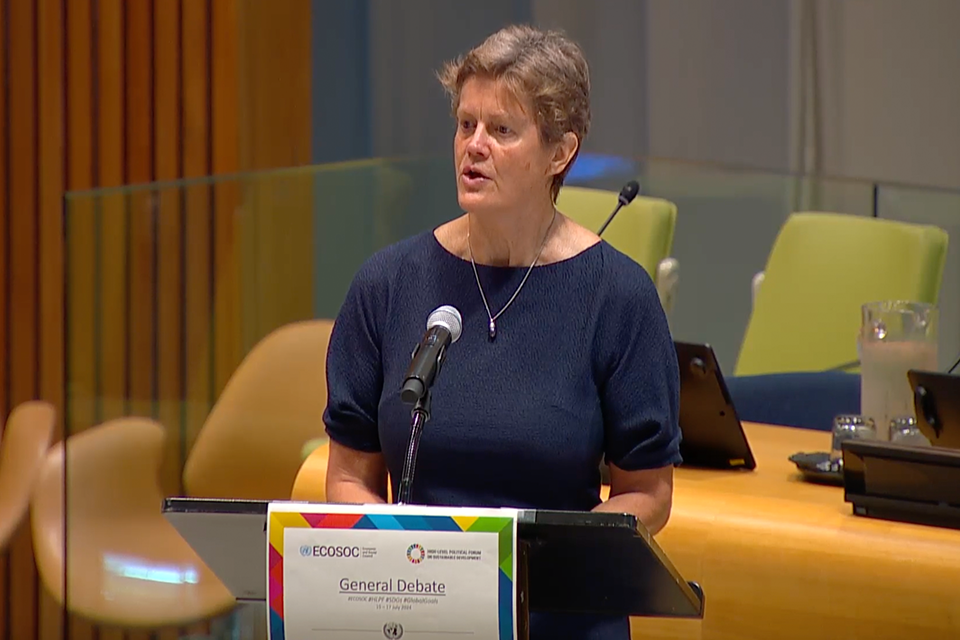
The UK’s commitment to the Sustainable Development Goals is unwavering.
My government has set out a central mission to tackle global poverty, instability and the climate and nature crisis. And to deliver this in genuine partnership with our friends in the Global South, driven by respect. Local leadership supports lasting, long-term impact and more inclusive progress, that leaves no one behind.
The SDGs under review this year are at the heart of the UK’s domestic and international agenda. Mitigating climate change and biodiversity loss. Delivering economic transformation, green growth and jobs to lift people out of poverty. Preventing and ending conflicts that steal the promise of development. Delivering humanitarian assistance to those who need it most. Unlocking more climate and development finance, and mobilising private sector to help deliver the SDGs and provide investment. Supporting faster Global Financial System reform.
Tackling unsustainable debt and illicit finance, which prevent countries from investing in their development. And empowering women and girls, the key to progress across all SDGs. We thank Brazil for their efforts through the G20 to refocus minds on hunger and poverty at this critical moment. All of this requires greater multilateral action and partnerships, to get the SDGs back on track.
We have many opportunities to do so over the coming months, including at the Summit of the Future, the third Land Locked Developing Country’s forum, the fourth Financing for Development Conference. The upcoming Quadrennial Comprehensive Policy Review must also ensure the UN system is best positioned to deliver the 2030 Agenda. Following the SDG Summit last year, we have the momentum. We must now focus on accelerating SDG progress – drawing on the synergies between climate and development, multistakeholder partnerships, and targeting interventions to the countries and people furthest behind.
Updates to this page
Is this page useful.
- Yes this page is useful
- No this page is not useful
Help us improve GOV.UK
Don’t include personal or financial information like your National Insurance number or credit card details.
To help us improve GOV.UK, we’d like to know more about your visit today. Please fill in this survey (opens in a new tab) .
- Another Degree of Success
- Graduate School News & Stories
Congratulations to the Graduate Student Sustainable Development Award Recipients
Written by Jennifer Ercoli - Director of Grad School Communications
Published July 12, 2024
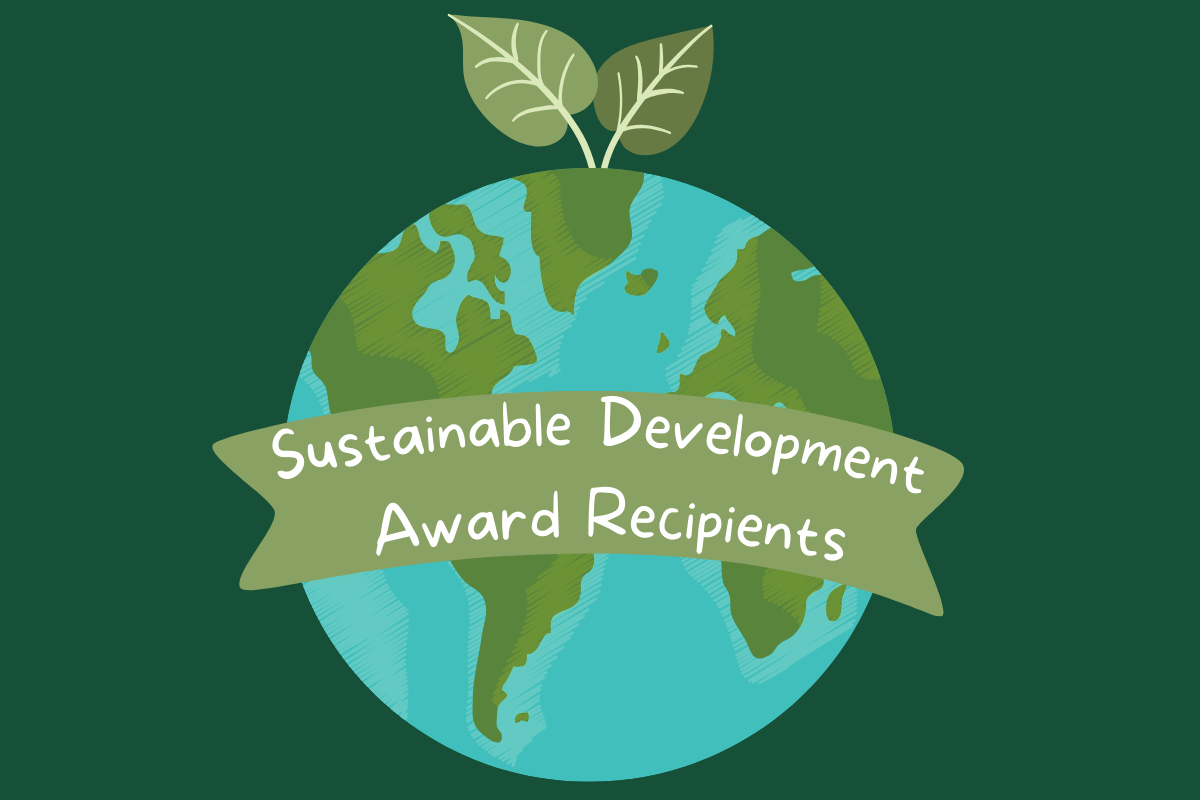
The Graduate School at the University of Louisiana at Lafayette is proud to share that 18 graduate students are recipients of the Sustainable Development Research Awards in the most-recent round of competition.
Funded by Dr. Brian Bolton, Professor of Finance and the Dwight W. Andrus, Jr. / BORSF Eminent Scholar Endowed Chair in Finance, and now—because of its impressive growth—the Office of Research Innovation & Economic Development, the program recognizes research that addresses pressing local and global challenges in alignment with the United Nations 17 Sustainable Development Goals (SDGs).
This third round of competition was, according to Bolton, the most competitive ever. It garnered 126 proposals from faculty, staff, and students representing all academic colleges and almost all graduate programs. “The breadth and quality of research being done here is really incredible,” he shared.
All award winners, including graduate students and faculty, will present their work in panel discussions through the upcoming academic year or during the Sustainable Development Research Summit in Spring 2025. These presentations offer a great opportunity to learn firsthand from “a portfolio of research that highlights the University’s commitment to sustainable development in Louisiana,”
“The grad students are exceptional when they present sharing both the details and bigger picture implications of their work with a large, interdisciplinary audience,” says Bolton. “This program is super exciting and inspiring and it's an honor to partner with the Graduate School to make it happen.”
The 18 graduate student recipients will receive $2,000 grants that provide seed money for innovative projects or reward projects nearing completion.
The 2024 Graduate Student Sustainable Development Research Award Recipients:
Ayodeji Adeyemo , M.S. Informatics, College of the Sciences Identification of Sex of Megafauna in a Population Using Artificial Intelligence
Abdullah Al-Musayeb , M.A. English, College of Liberal Arts The Loss of Land, and Biodiversity in Louisiana’s Chitimacha Landscape: An Eco-critical Analysis of Stouff’s Losing Home: A Native Waters Compendium
Wilbur Bennett , Ph.D. Applied Language Speech Sciences, College of Liberal Arts Maintaining Our Voices: Collaborative Preservation of Cajun and Creole Dialects for Individuals with Neurodegenerative Diseases
Morteza Bodaghi , Ph.D. Systems Engineering – Mechanical Engineering, College of Engineering A Multimodal Intermediate Fusion Network with Manifold Learning for Stress Detection
Jenita Jahangir , Ph.D. Mathematics, Ray P. Authement College of Sciences The Interplay Between Multiple Control Mechanisms in a Host-Parasitoid System: A Discrete-Time Stage-Structured Modeling Approach
Sherbaz Khan , Ph.D. Systems Engineering, College of Engineering Performance Evaluation of Hybrid Hot Mix Asphalt Mixtures for Durable Louisiana Roads
Waseem Akhtar Khan , M.S.E. Civil Engineering, College of Engineering Evaluating Louisiana’s TIM and Analyzing Factors Impacting Crash-Related Incidence Clearance Time
Hisham Mahmood , M.B.A., B. I. Moody III College of Business Administration AI-Powered Sustainable Marketing: Catalyst for Economic Expansion
Md Nahin Mahmood , Ph.D. Systems Engineering, Petroleum Engineering, College of Engineering Carbon Dioxide Storage in Marine Gas Hydrate Reservoirs Using Geothermal Energy
Sydney McDermott , Ph.D. Environmental & Evolutionary Biology, Ray P. Authement College of Sciences Long Term Impacts of the Deepwater Horizon Oil Spill on Hard Substrate Deep-Sea Communities
Tarikul Islam Milon , Ph.D. Earth & Energy Sciences, Ray P. Authement College of Sciences Development of TSR-based Method for Probing Interaction Between Drug and Target Protein
Amy Pousson , M. Architecture , College of the Arts Mendenhall Meadery and Apiary
Nicole Pyke , M.S. Psychology, College of Liberal Arts Sober and Serene: The Mediating Role of Psychological Flexibility in the Relationship Between Substance Use Recovery and Posttraumatic Growth
Jennifer Raabe , Ph.D. Environmental and Evolutionary Biology, Ray P. Authement College of Sciences Using Valvometry to Study Eastern Oyster Behavior in Response to Low Salinity and Toxigenic Cyanobacteria
Araf Mim Ahmed Smrity , Ph.D. Systems Engineering - Mechanical Engineering, College of Engineering Optimizing Stability and Efficiency of Hybrid Nanofluids: A Molecular Dynamics Approach for Sustainable Economic Growth and Environmental Protection
Diana Alejandrina Taj , Ph.D. Earth & Energy Science, Ray P. Authement College of Sciences Understanding the Influence of Acute Saltwater Intrusion Events on Methane and CO2 Fluxes from Freshwater Wetland Vegetation Patches
Mohammad Tajdin , Ed.D. Educational Leadership, College of Education & Human Development Understanding Issues Related to Mental and Physical Well-Being of Doctoral Students
Kevin Torgensen , Ph.D. Environmental & Evolutionary Biology, Ray P. Authement College of Sciences Highlighting Global Conservation Priorities for Freshwater Fishes Using New Methods of 3D Photogrammetry
In total, $80,000 was awarded in this third round of competition to 46 recipients that included these 18 graduate students and 18 faculty members, four staff members, and six undergraduate students from across the University research community.
The Graduate Schools says congratulations to these scholars who are using their sustainable development research to improve lives in our communities both near and far.
For more information about the Sustainable Development Research Awards Program and all grant recipients, visit https://moody.louisiana.edu/SDGresearch . The program is a collaboration between Bolton, Academic Affairs—Student and Faculty Excellence, the Graduate School, the Office for Campus Inclusion, the Office of Sustainability, and the Office for Research, Innovation & Economic Development.
- Request Information
- Visit Campus

IMAGES
COMMENTS
Our Global Sustainable Development MPhil/PhD is for those driven to develop innovative approaches to complex challenges of sustainable development. With the support of a supervisory team, you will work on a transdisciplinary project addressing a sustainability challenge. Through structured training, you will be equipped to integrate methods and ...
Programme structure. Most students complete this programme in 4 years. You cannot take less than 2 years to finish your research and the maximum time you are allowed is normally 4 years. This programme is only available through the Southwest Doctoral Training Partnership. Applications open from October each year and close around January.
Environment and Sustainability. Our Environment and Sustainability PhD programme equips you with the knowledge, skills, and expertise to become a leader in addressing environmental challenges and promoting sustainable practices in various sectors. Apply. Research brochure. Register for updates.
The Institute of Development Studies (IDS) transforms the knowledge, action and leadership needed for more equitable and sustainable development globally, through our world-class research, learning and teaching. As a PhD researcher, you'll join a thriving research community with more than 70 research staff and 50 postgraduate researchers.
About the course. The Doctor of Philosophy (DPhil) in Sustainable Urban Development is a part-time doctoral programme that provides outstanding students an opportunity to pursue in-depth and rigorous research about the pressing challenges of urban sustainability and the processes of environmental, economic, and social development in urban environments around the world.
PhD students at the UCL Institute for Sustainable Resources work on a range of research projects relating to the sustainable use of the world's resources - including energy, food, minerals and ecosystems. Using a variety of quantitative and qualitative methods, our research analyses natural and human systems, on global, regional, and local ...
It does not cover living costs or travel or fieldwork. Tuition fees 2024/25 for MPhil/PhD Environmental Policy and Development. Home students: £4,786 for the first year. Overseas students: £22,632 for the first year. The fee is likely to rise over subsequent years of the programme.
The interdisciplinary pathway in sustainable futures seeks to produce a new generation of researchers who can address the pressing social issues of sustainability in the face of a growing global population. Sustainability research asks how human wellbeing can be maintained and enhanced in the long term, given rising populations, limited natural ...
Students will take a Research Methods course and it is compulsory for all first year PhD students to attend, including part-time students. Students are also encouraged to attend seminars and other events that are organised by the Centre of Development Studies and departments throughout the University, such as the Social Sciences Research ...
The University of Surrey has been leading the way in environment and sustainability research for more than 30 years. The diversity of Surrey's interests in this area of research, and the breadth of our staff's expertise, means we can support PhD/EngD studies ranging across a full spectrum of sustainability research, including pure social science approaches, natural sciences and engineering.
Bartlett School of Sustainable Construction. [email protected]. UCL is regulated by the Office for Students. With a strong multidisciplinary approach, PhD research at The Bartlett School of Sustainable Construction covers a breadth of topics related to management, economics and finance of the built environment.
The University of Sheffield invites applications from outstanding candidates for this PhD scholarship opportunity. The project is looking at understanding the interplay of selfish routing, social norms and the availability of transport modes for the development of sustainable mobility at urban and regional scale.
Developing environmentally sustainable & operationally competitive manufacturing organisations PhD. Cranfield University School of Aerospace, Transport and Manufacturing (SATM) In the quest for sustainable development, the manufacturing sector faces the dual challenge of minimizing environmental impact while enhancing operational efficiency.
The standard offer of a PhD place at De Montfort University is on to a four year doctoral programme. All students on Sustainable Development Doctoral Programme are research students of De Montfort University and are subject to the University's Code of Practice. You should always consult this when you submit any paperwork, such as your ...
Our distance learning PhD in International Development offers the opportunity to conduct original research under the guidance of academic supervisors, leading to an 80,000 word thesis, for those unable to live and work on campus on a regular basis. You will take a number of research training modules in your first year and may attend further ...
Staff within the Environment and Development Research Group of the Sustainability Research Institute are keen to hear from prospective students interested in conducting interdisciplinary research across the natural and social science. There will be a focus on the relationship between the environment and human development. <p>The world faces ...
Our Global Sustainable Development MPhil/PhD is for those driven to develop innovative approaches to complex challenges of sustainable development. With the support of a supervisory team, you will work on a transdisciplinary project addressing a sustainability challenge. Through structured training, you will be equipped to integrate methods and ...
Research in development studies gives you the opportunity to investigate key global social-scientific areas, such as sustainable development, economic growth and poverty reduction, primarily in developing countries. The NRI has a rapidly growing programme of research at MPhil and PhD level on interdisciplinary topics relating to development in ...
There are three admissions routes to the MPhil and PhD in International Development: The 1+3 structure: Following successful completion of the MSc Research for International Development at SOAS. ESRC 1+3 studentships are available to fund this route. The +3 structure: By direct applications for MPhil/PhD in International Development admission .
Sustainable Energy Technology. PhD. Full-time: 3 to 4 years. Part-time: Not available. Start date: Multiple available. UK fees: £5,350. International fees: £23,000 for social sciences based project or 30,750 for science based project. How to apply Postgraduate funding Make an enquiry.
Applications are now open for our PhD scholarships in Global Sustainable Development (GSD) for the academic year 2022/23. The Leverhulme Trust Doctoral Scholarships Programme, 'TRANSFORM: Transformations of Human-Environment Interactions to Sustainable Development', is led by the Global Sustainable Development (GSD) Department in the School for Cross-faculty Studies.
Why Study Sustainable Development in United Kingdom. Studying Sustainable Development in United Kingdom is a great choice, as there are 25 universities that offer PhD degrees on our portal. Over 551,000 international students choose United Kingdom for their studies, which suggests you'll enjoy a vibrant and culturally diverse learning ...
The Engineering for Sustainable Development MPhil course is designed for graduates who want to help tackle pressing global problems by developing practical engineering solutions. The course is about recognising that engineers have to operate within an increasingly complex set of constraints, and therefore must be capable of dealing with a range ...
The Norwich Research Park (NRP) Biosciences Doctoral Training Programme (DTP) is offering fully-funded studentships for October 2024 entry. The programme offers postgraduates the opportunity to undertake a 4-year PhD research project whilst enhancing professional development and research skills through a comprehensive training programme.
Apply to Sustainable Graduate Remote jobs now hiring on Indeed.com, the worlds largest job site. ... The responsibility of the Sales graduate is to maximize customer retention and support sales growth across the UK&I ... Delegate model development to Analyst and Graduate Analysts within the Retail Pricing team and support the development of ...
The UK's commitment to the Sustainable Development Goals is unwavering. My government has set out a central mission to tackle global poverty, instability and the climate and nature crisis.
"This program is super exciting and inspiring and it's an honor to partner with the Graduate School to make it happen." The 18 graduate student recipients will receive $2,000 grants that provide seed money for innovative projects or reward projects nearing completion. The 2024 Graduate Student Sustainable Development Research Award Recipients: